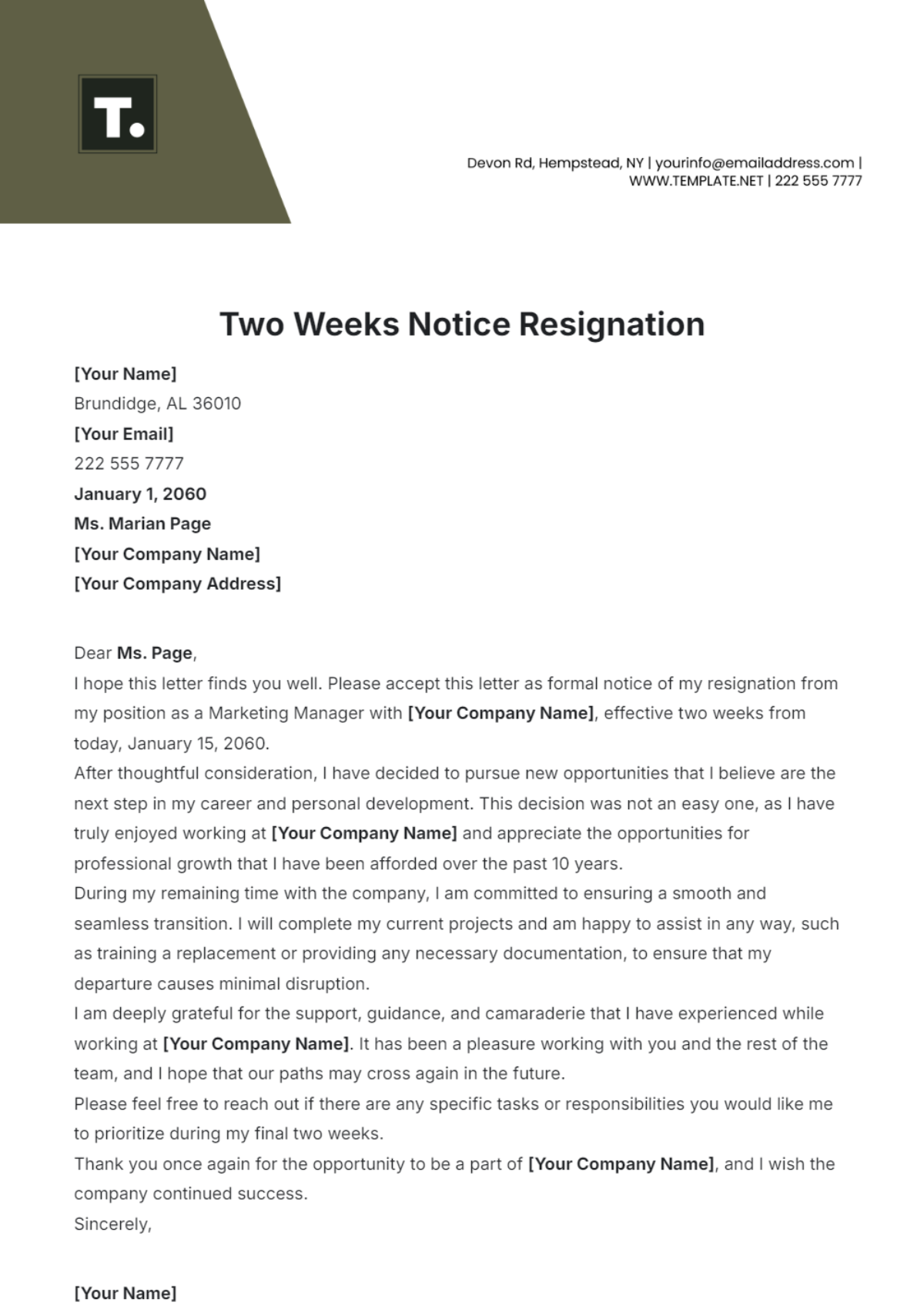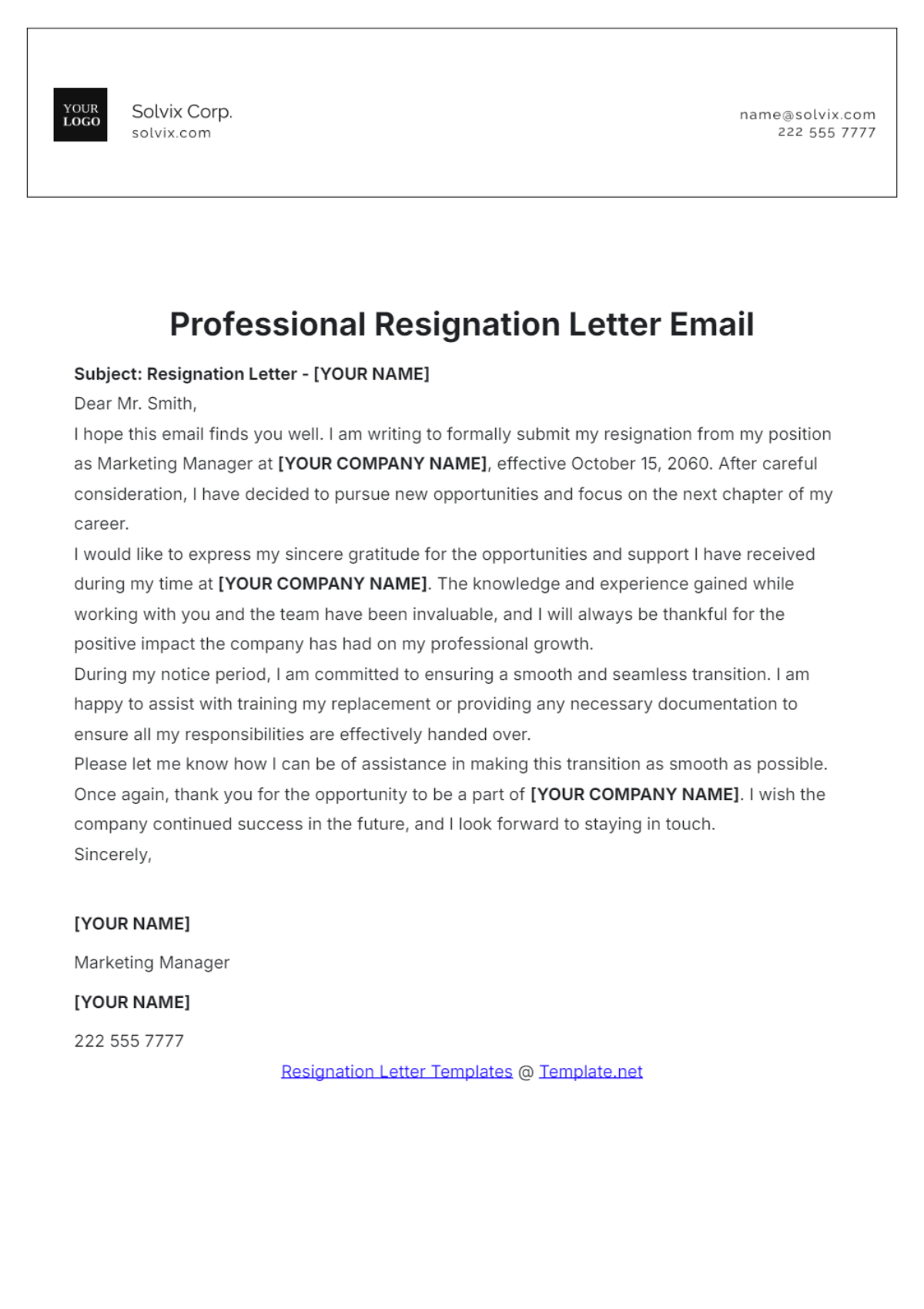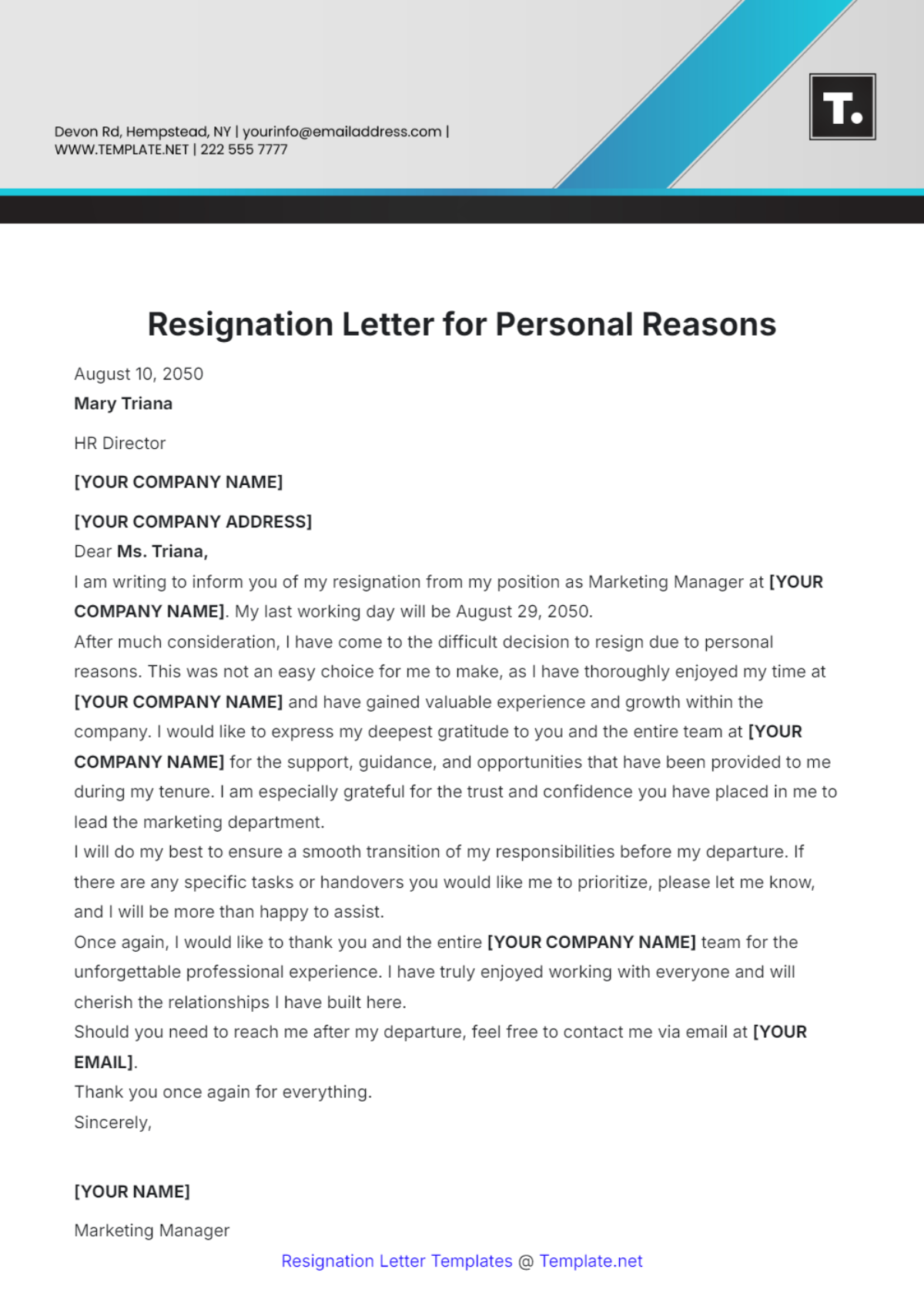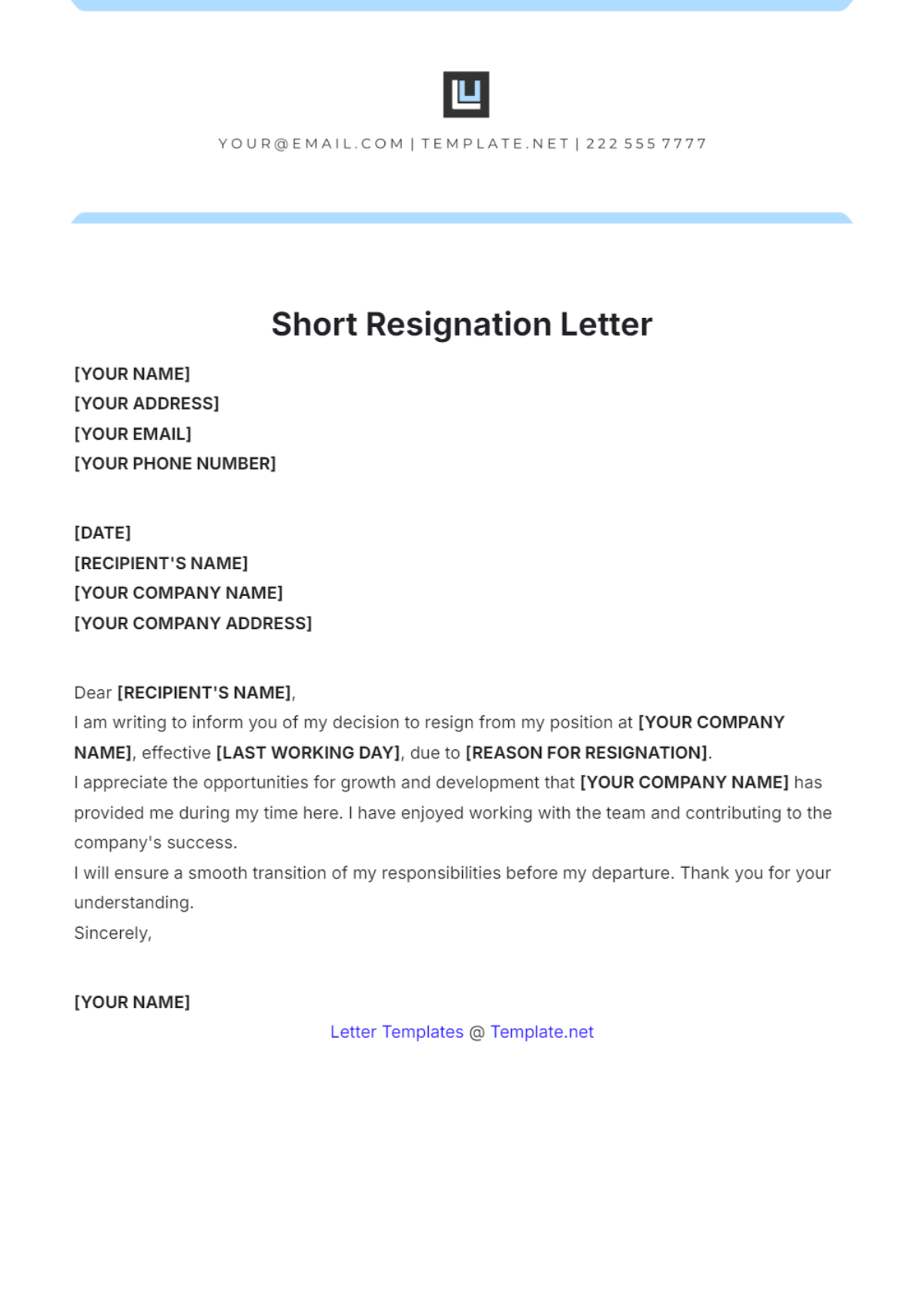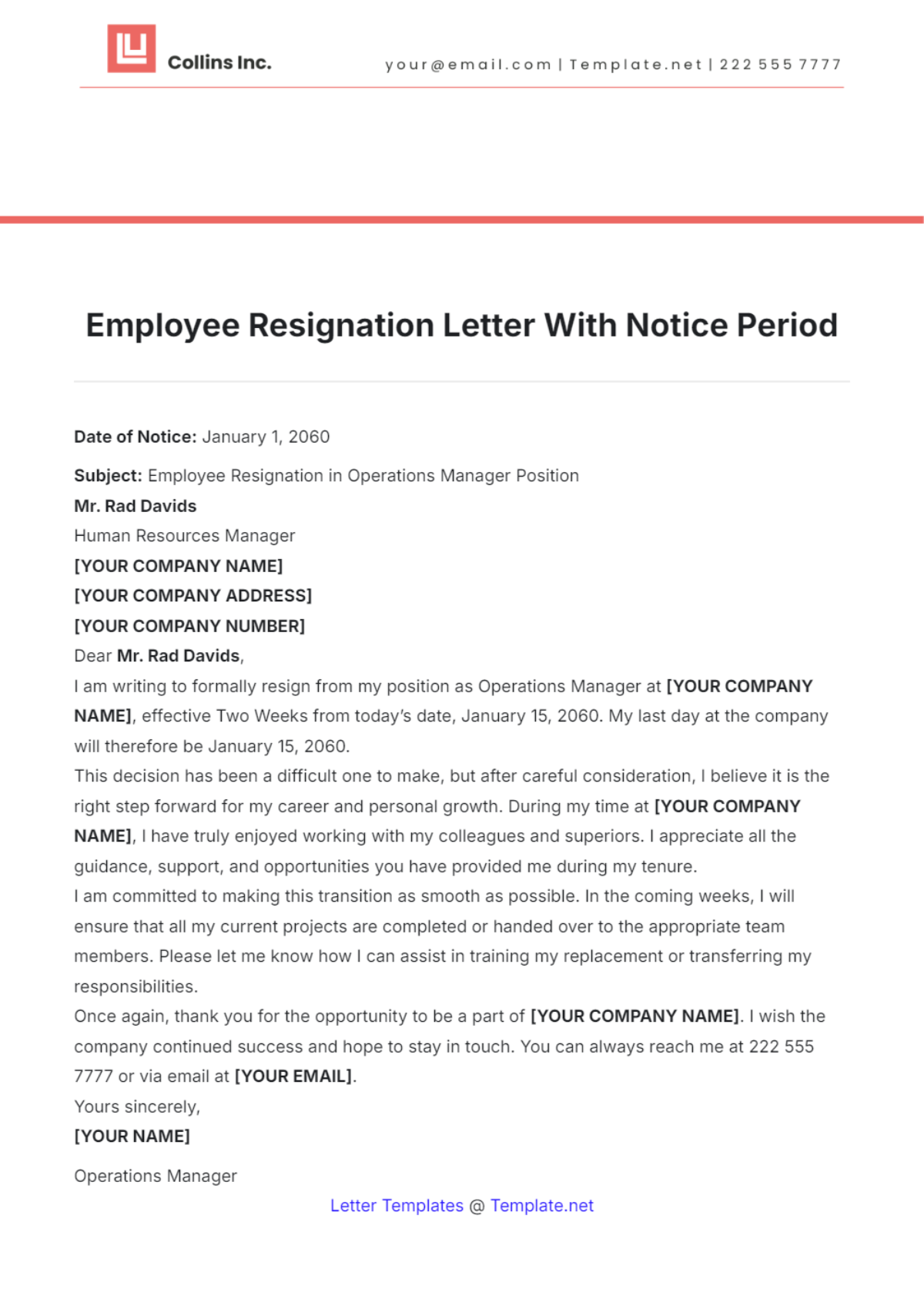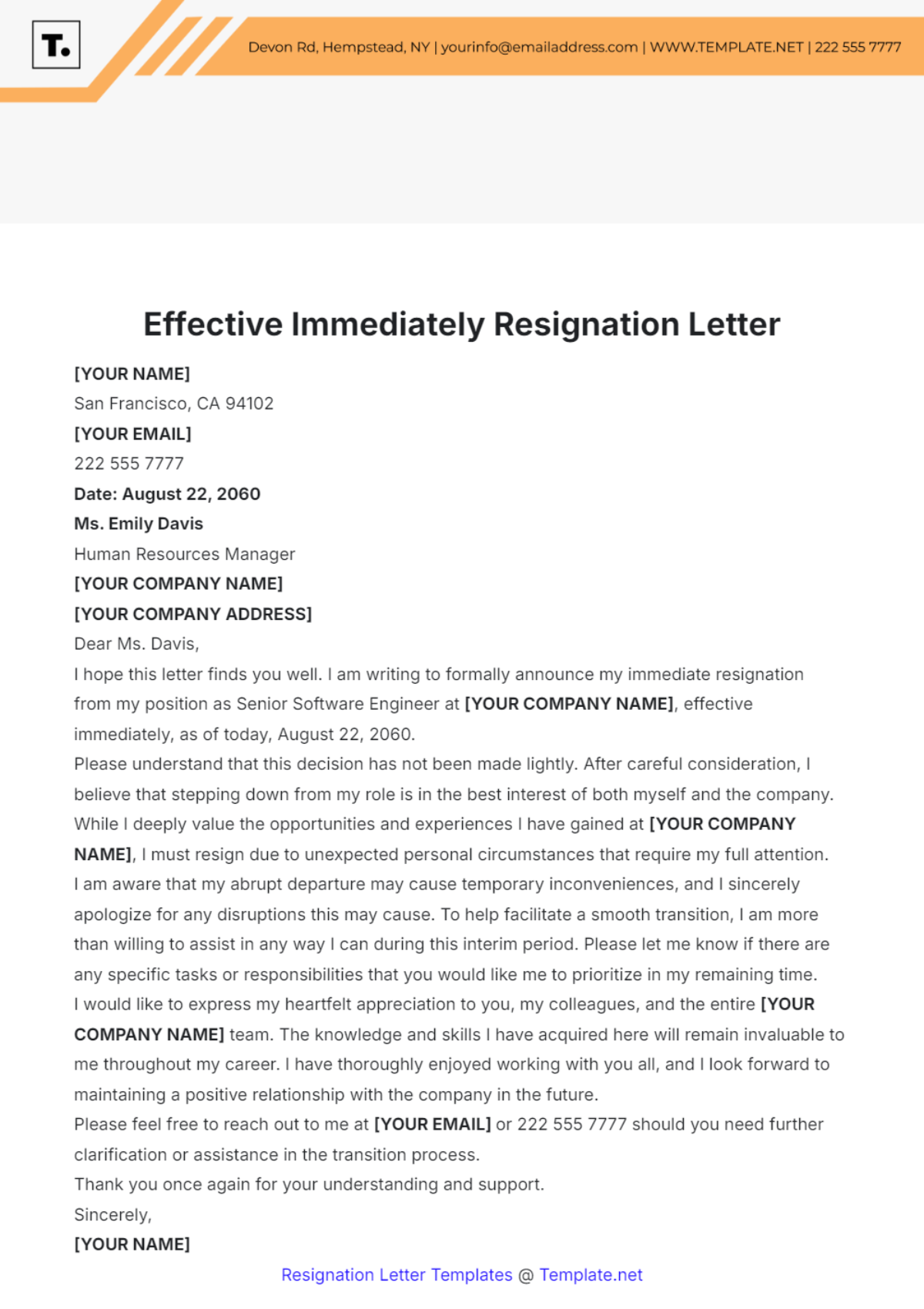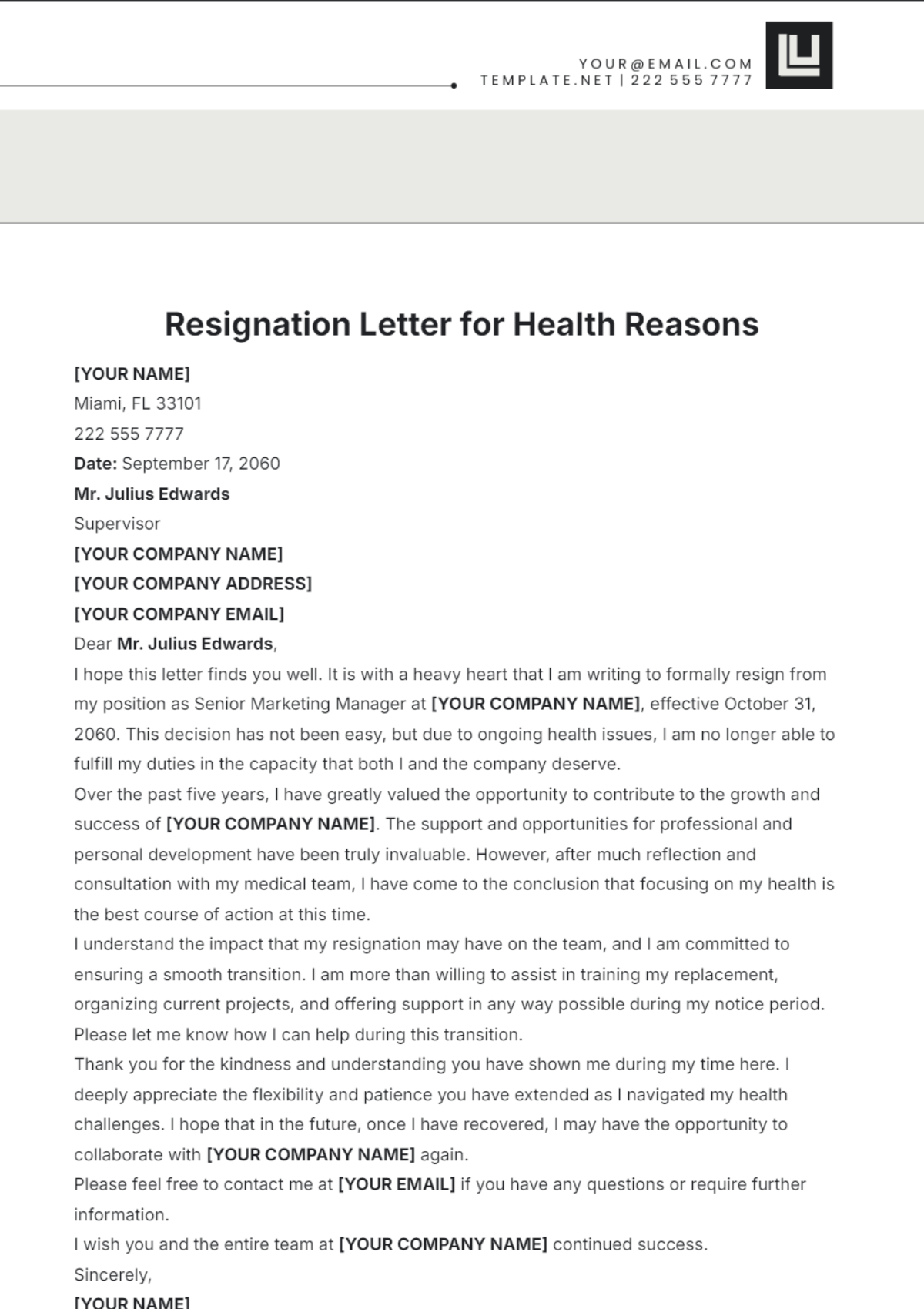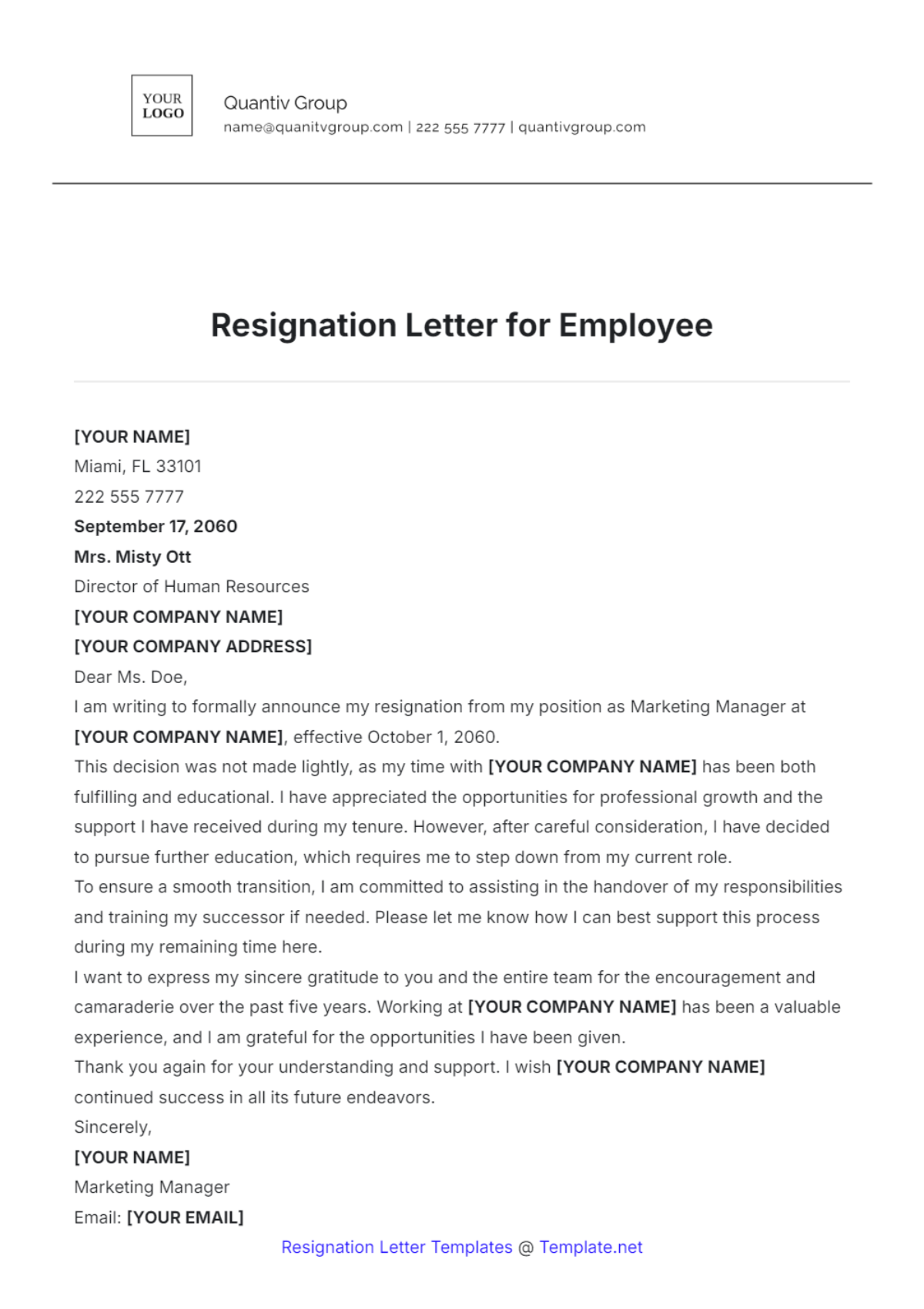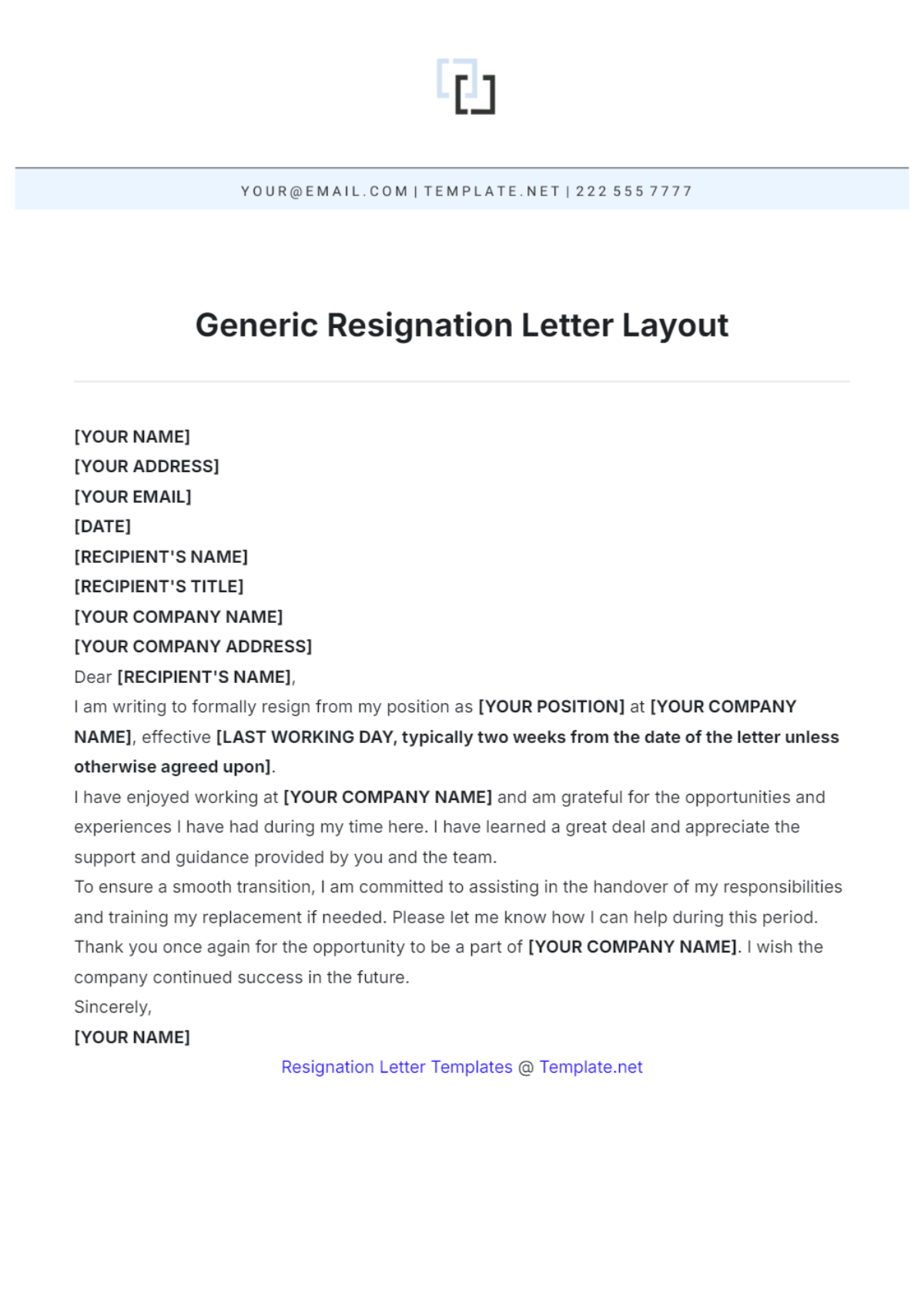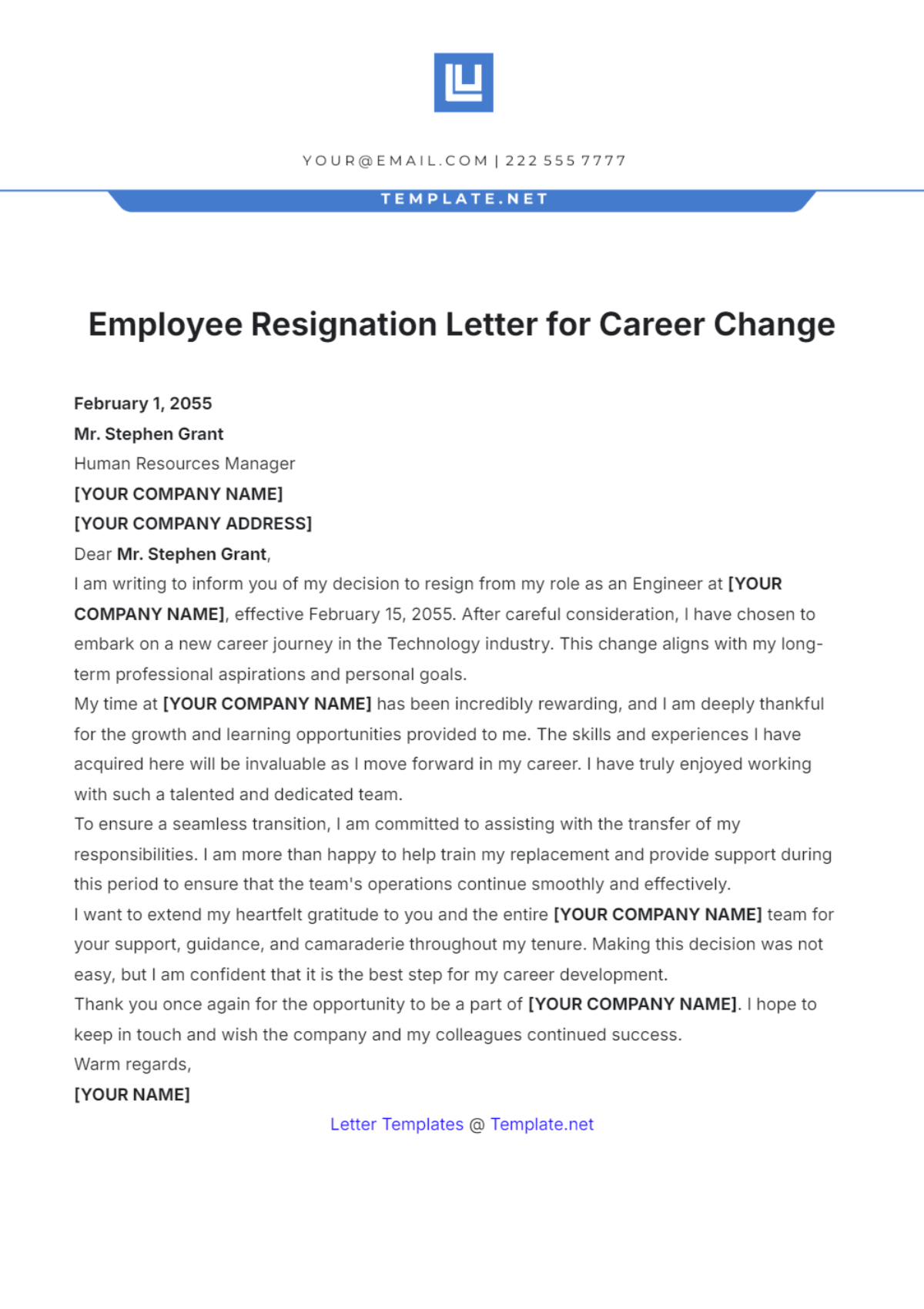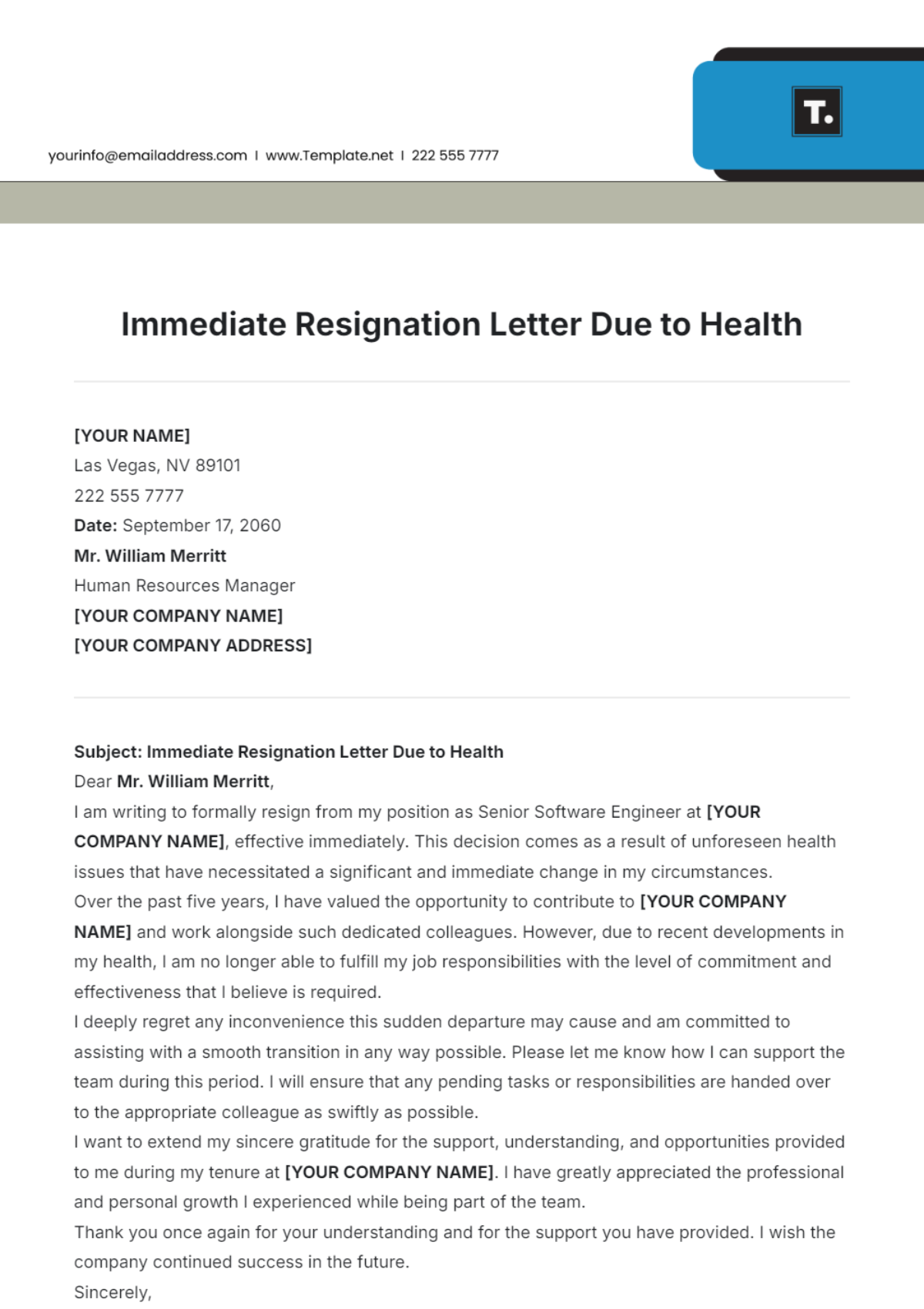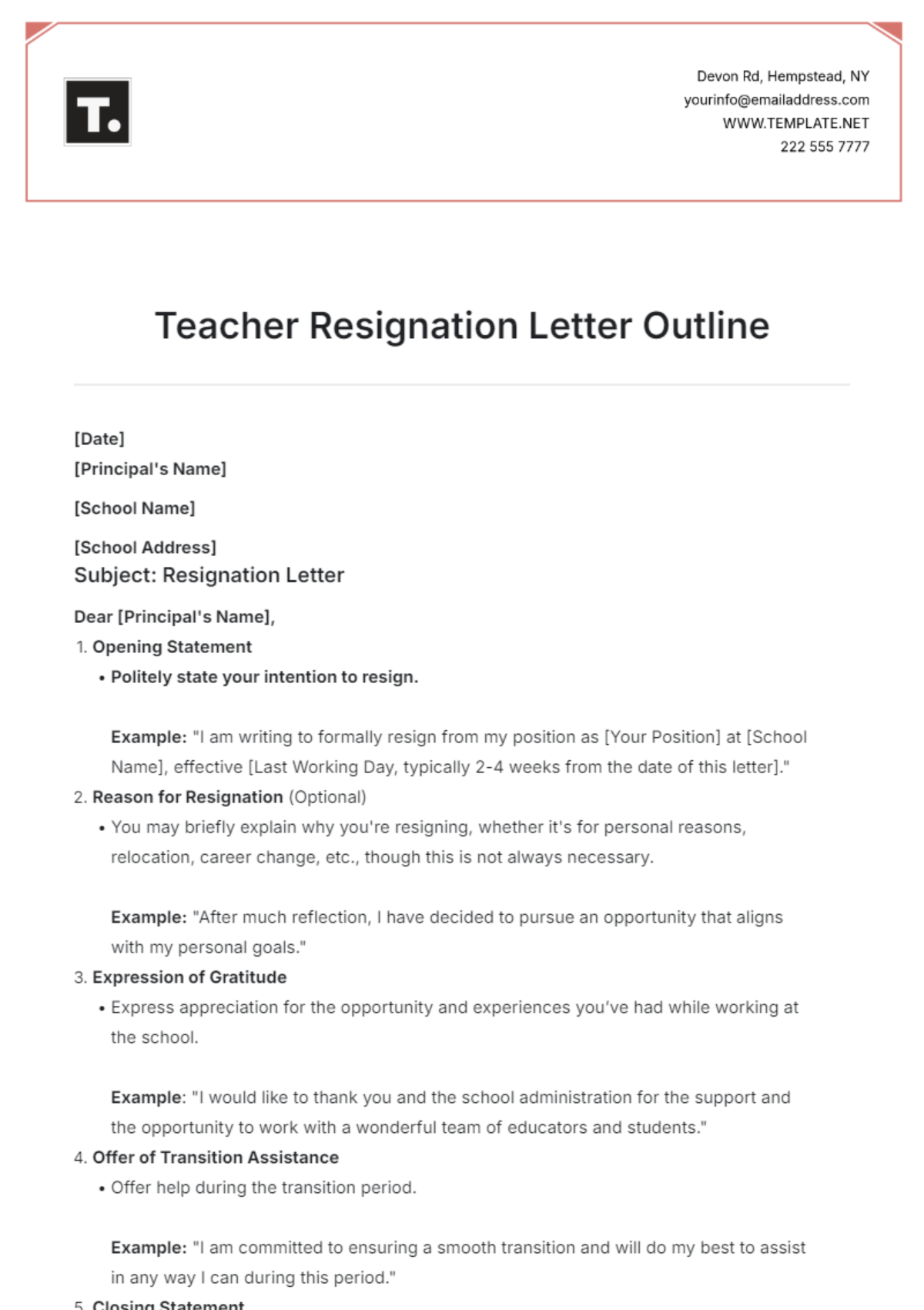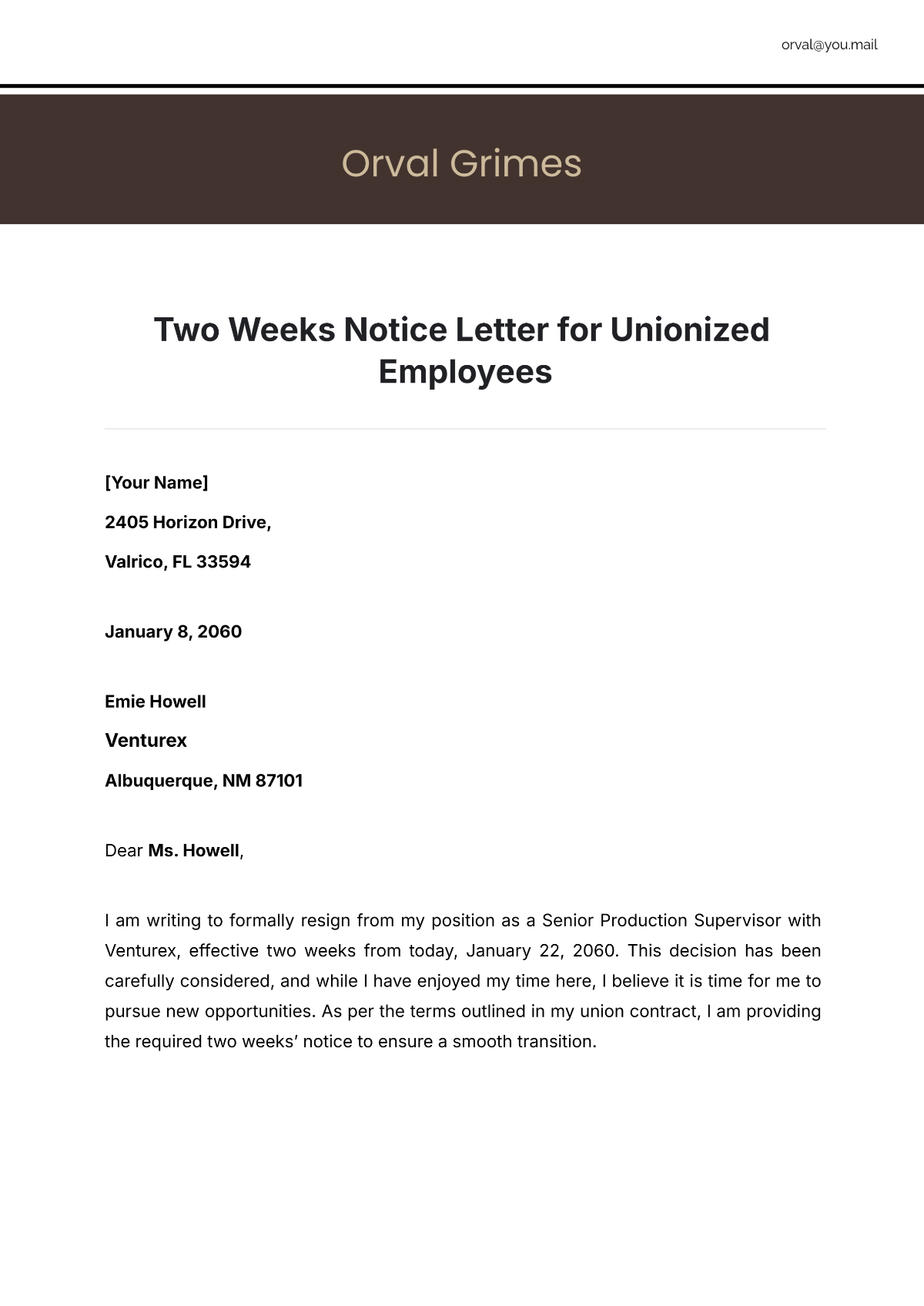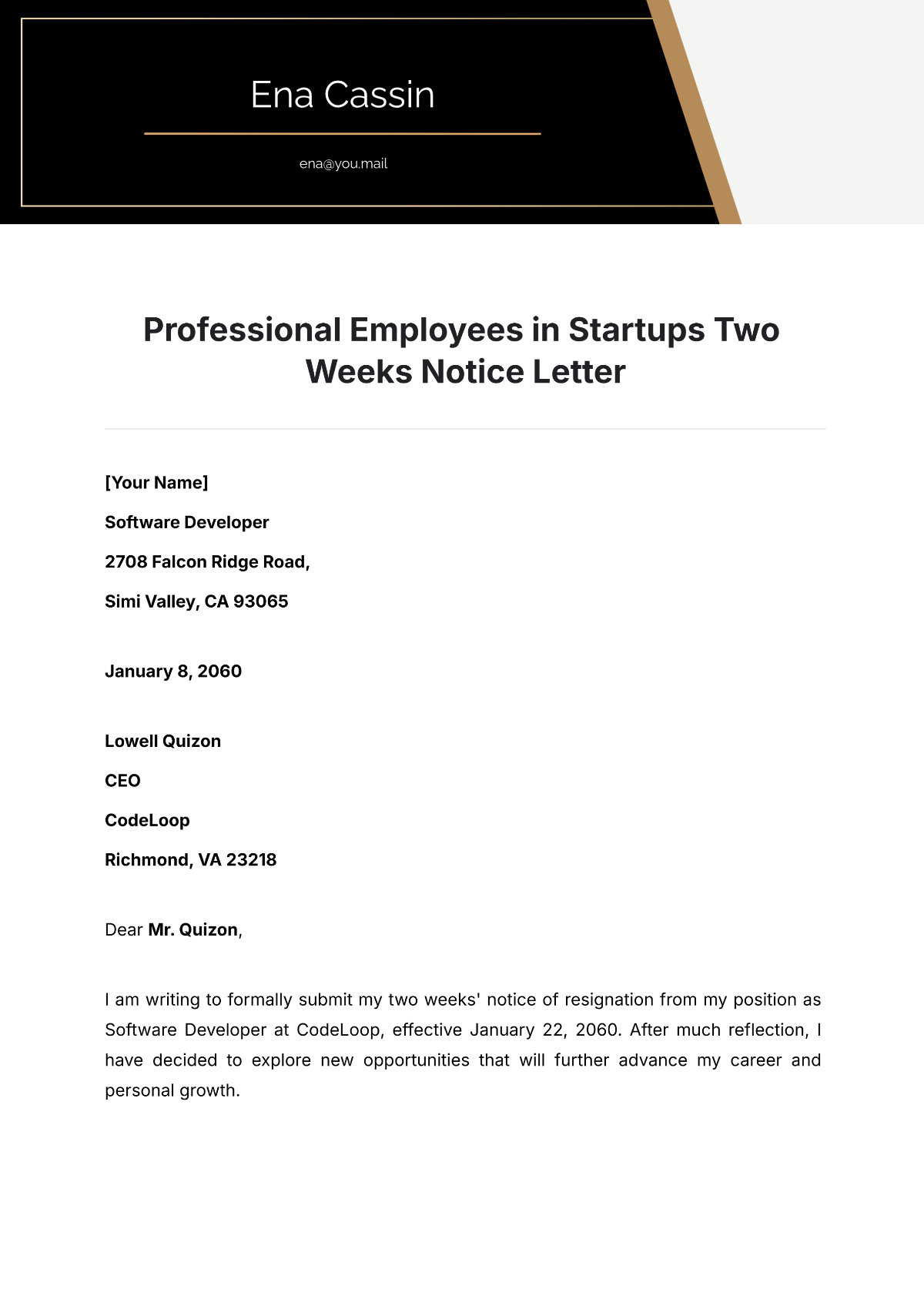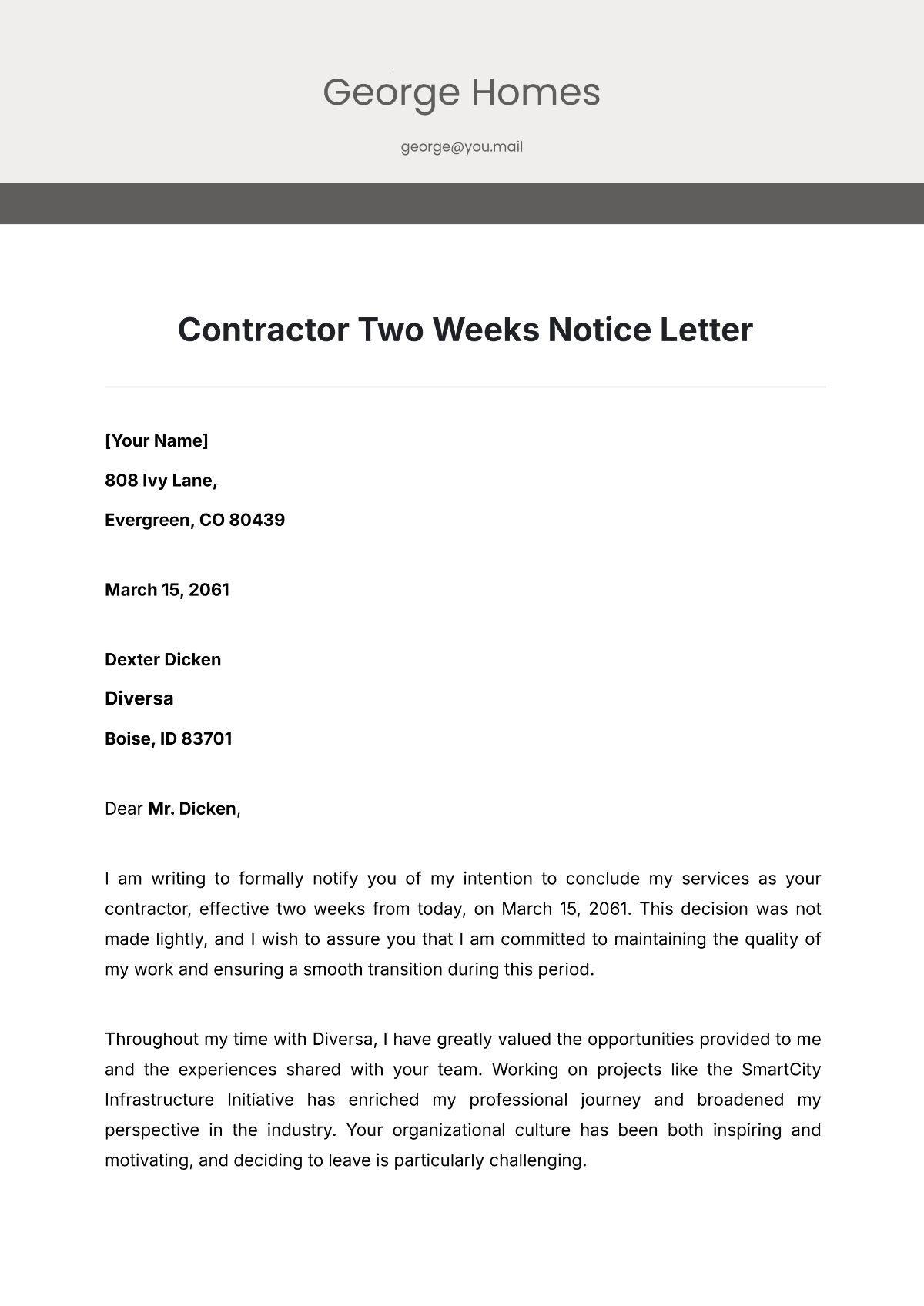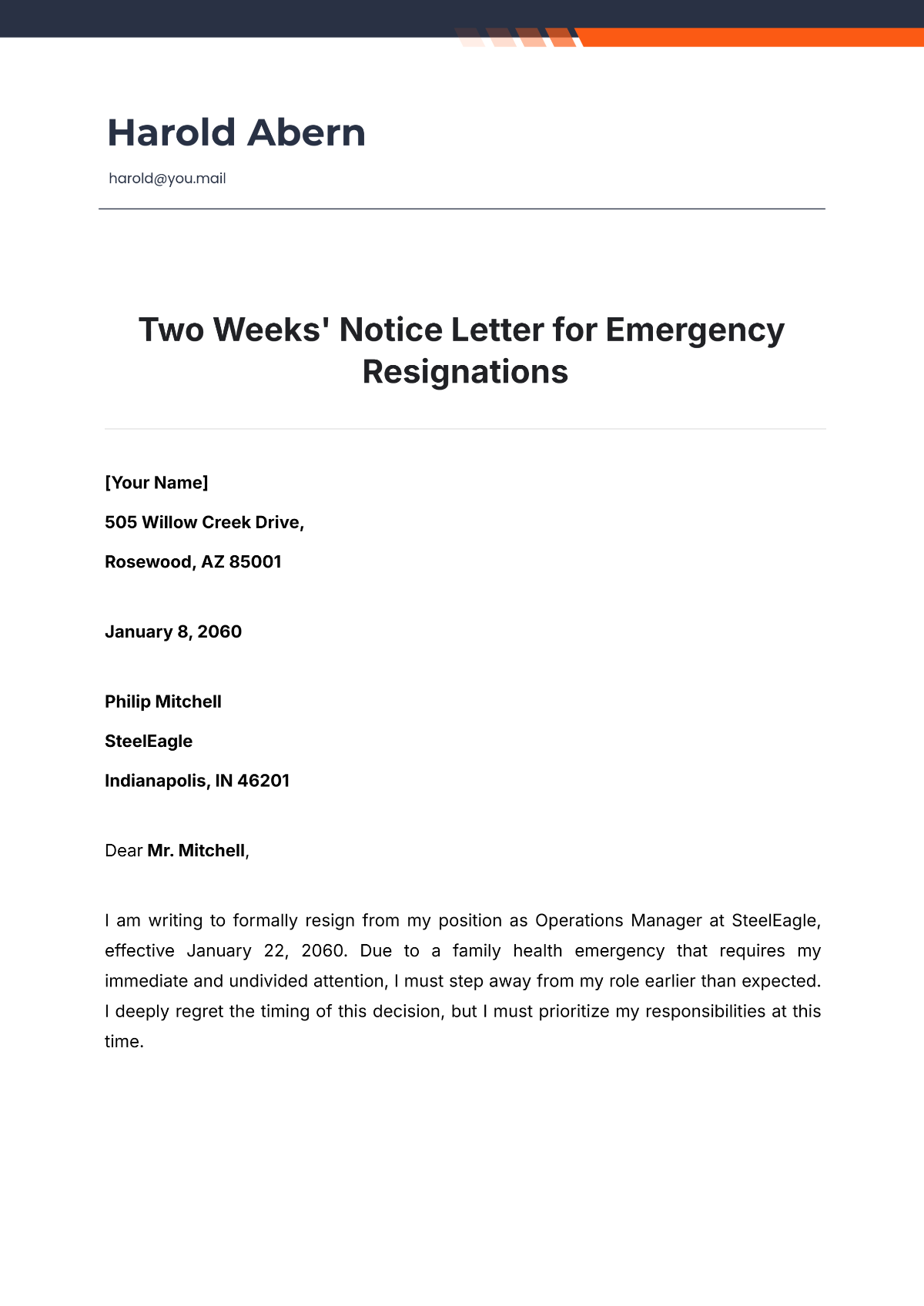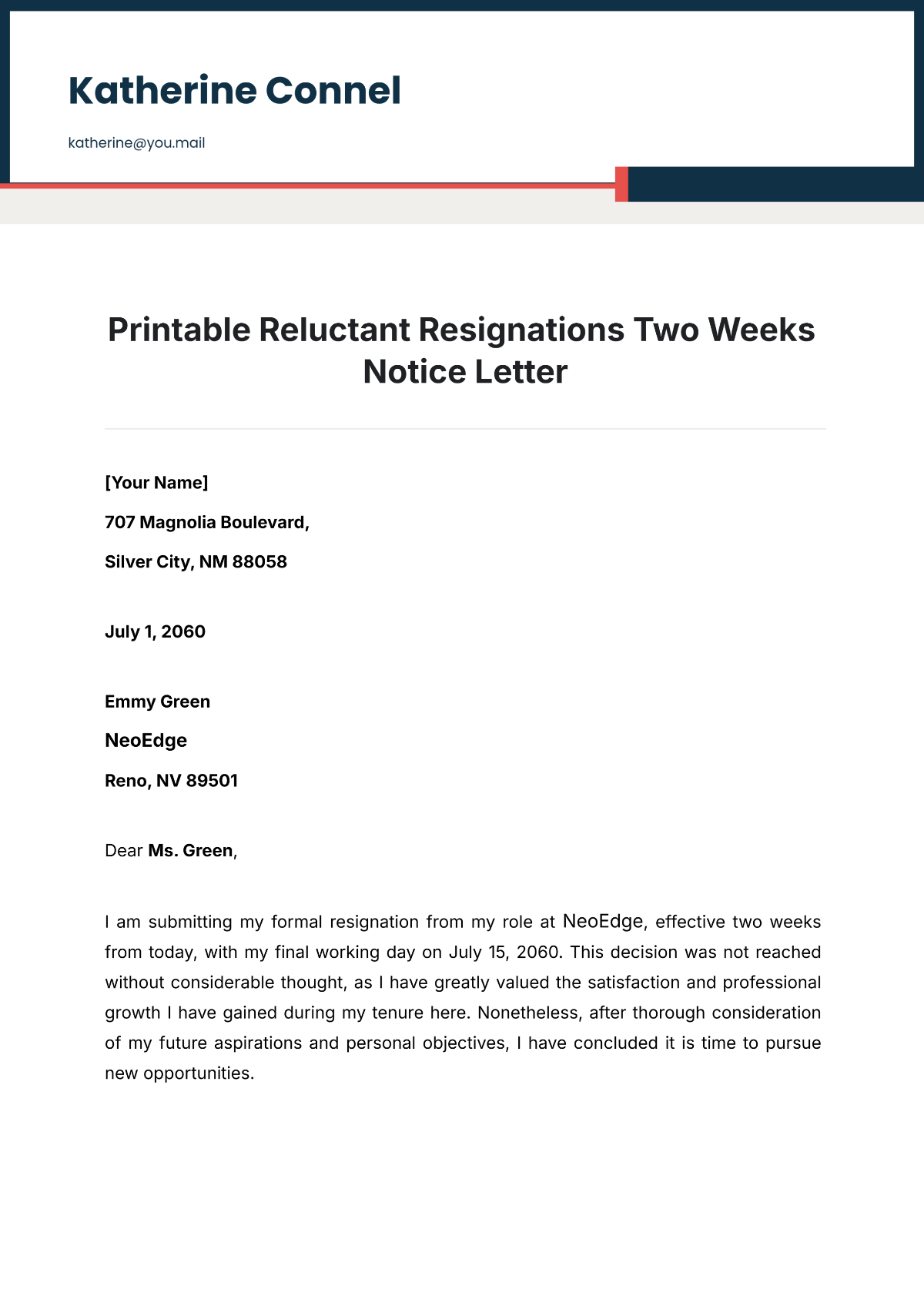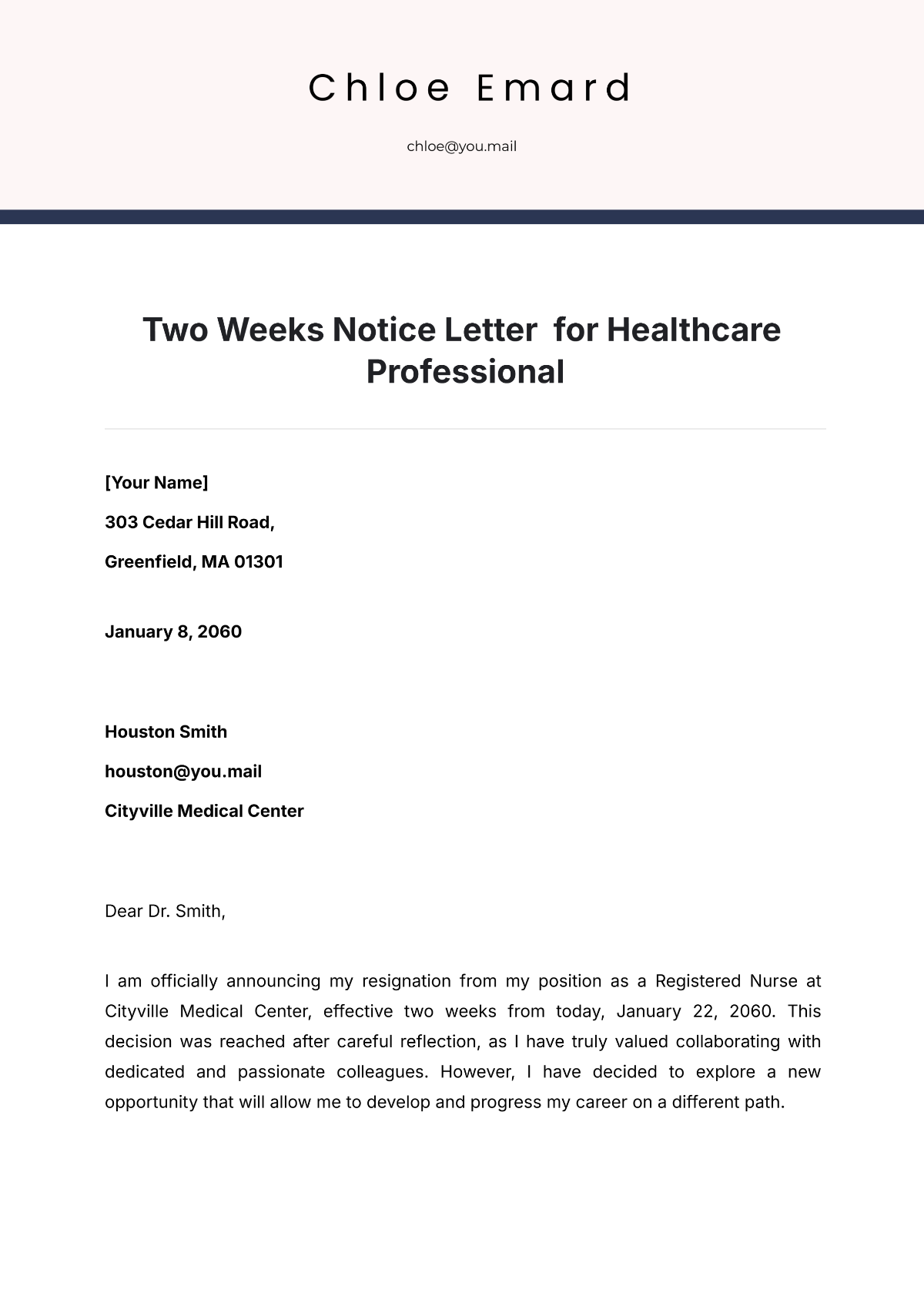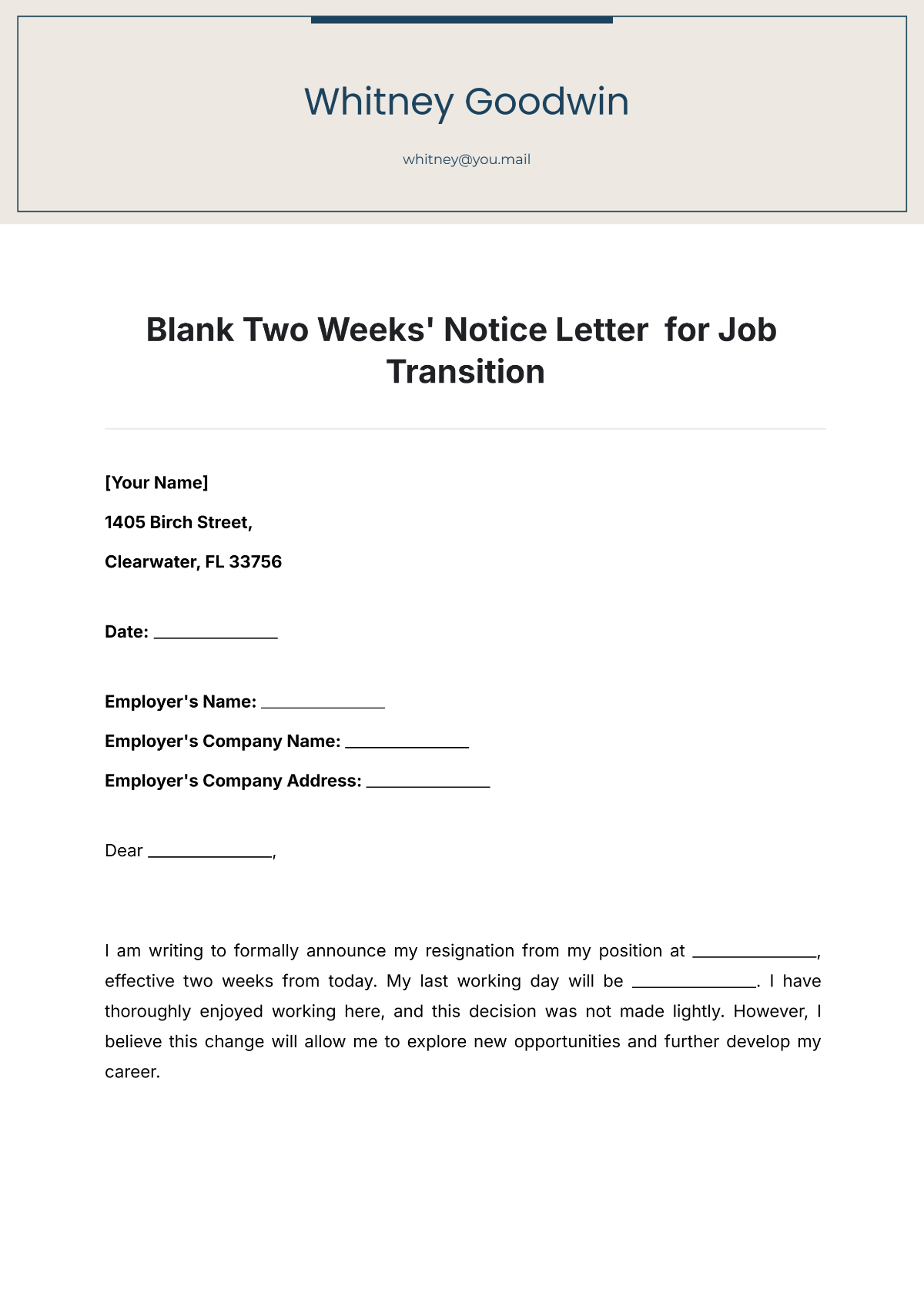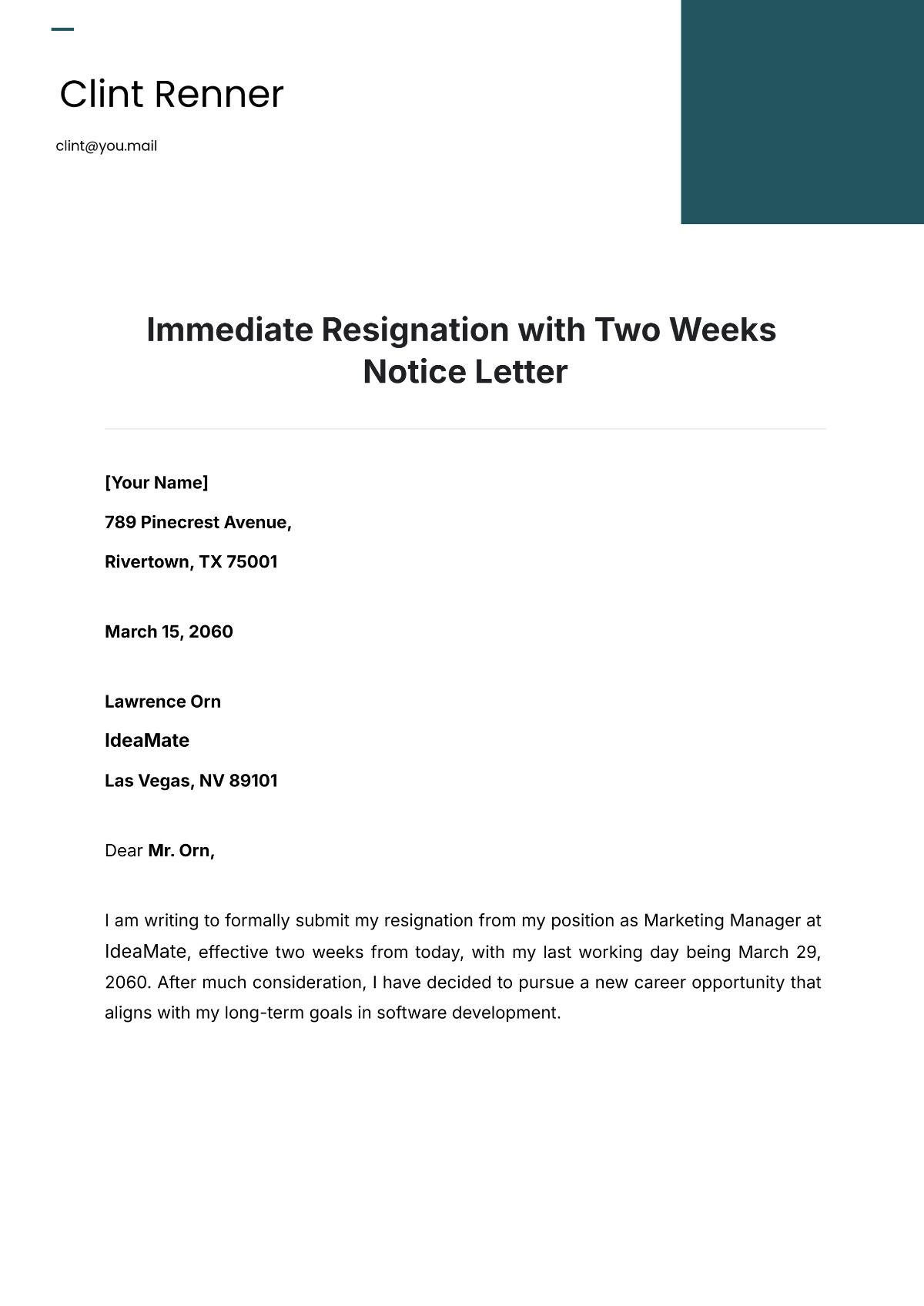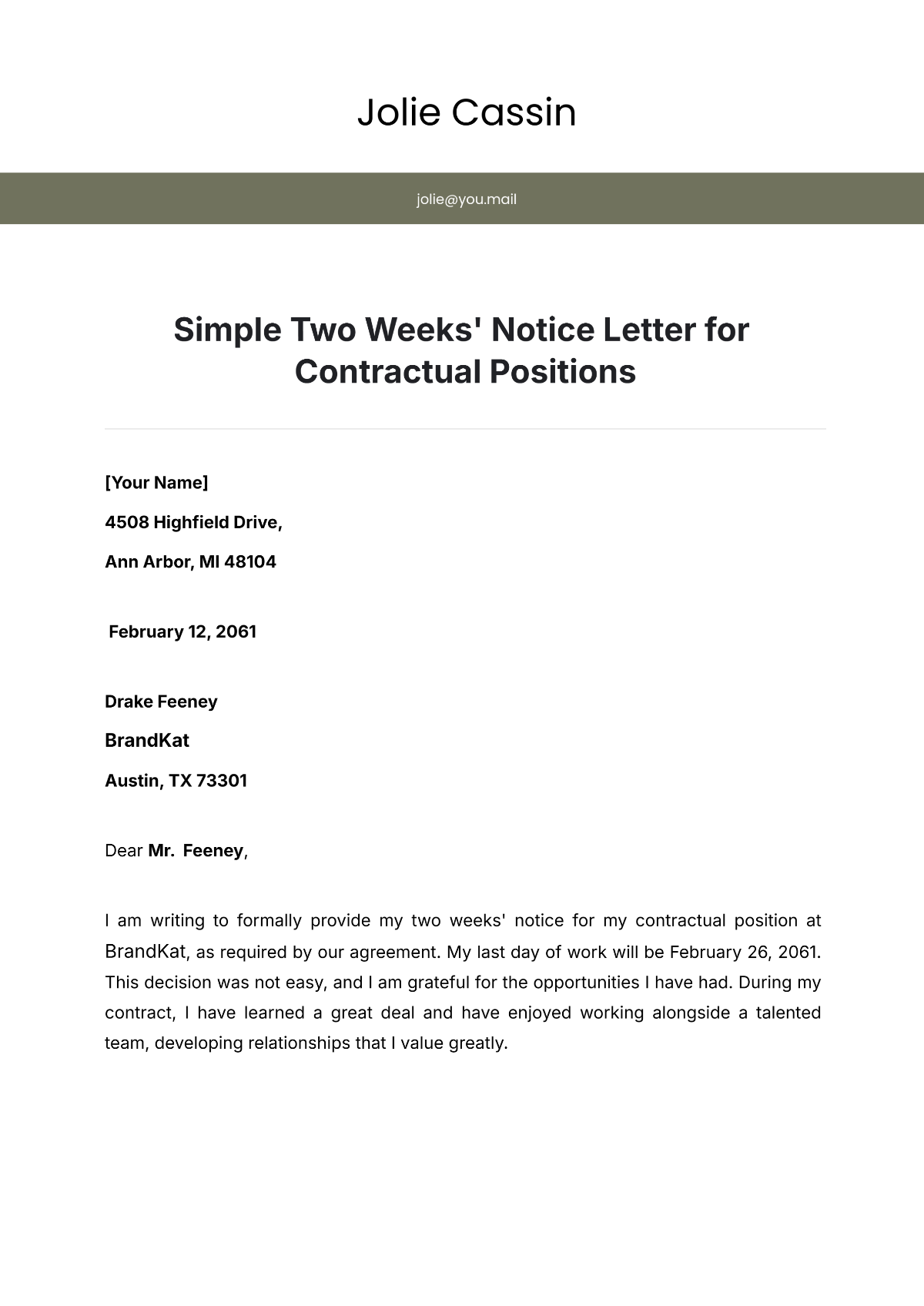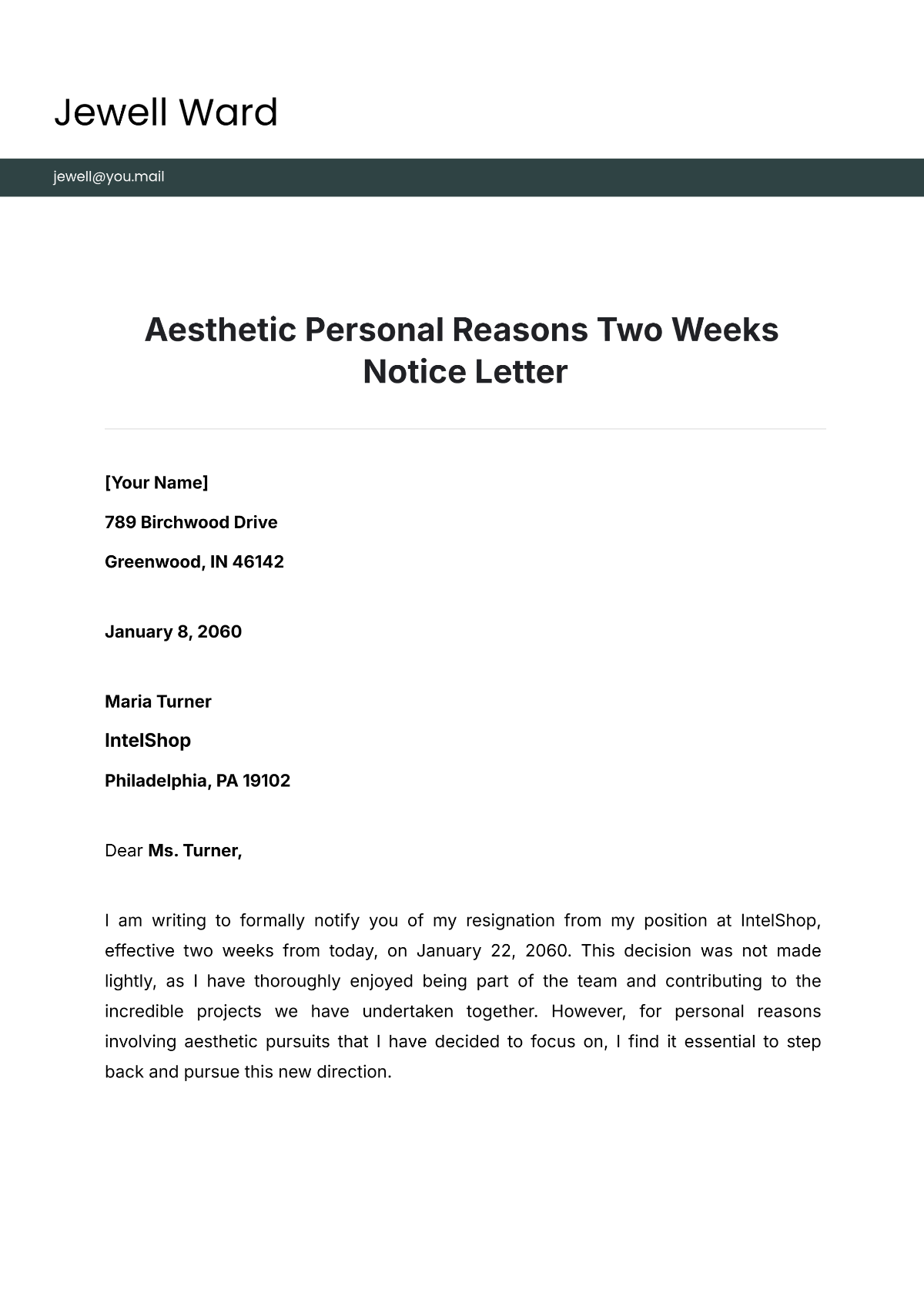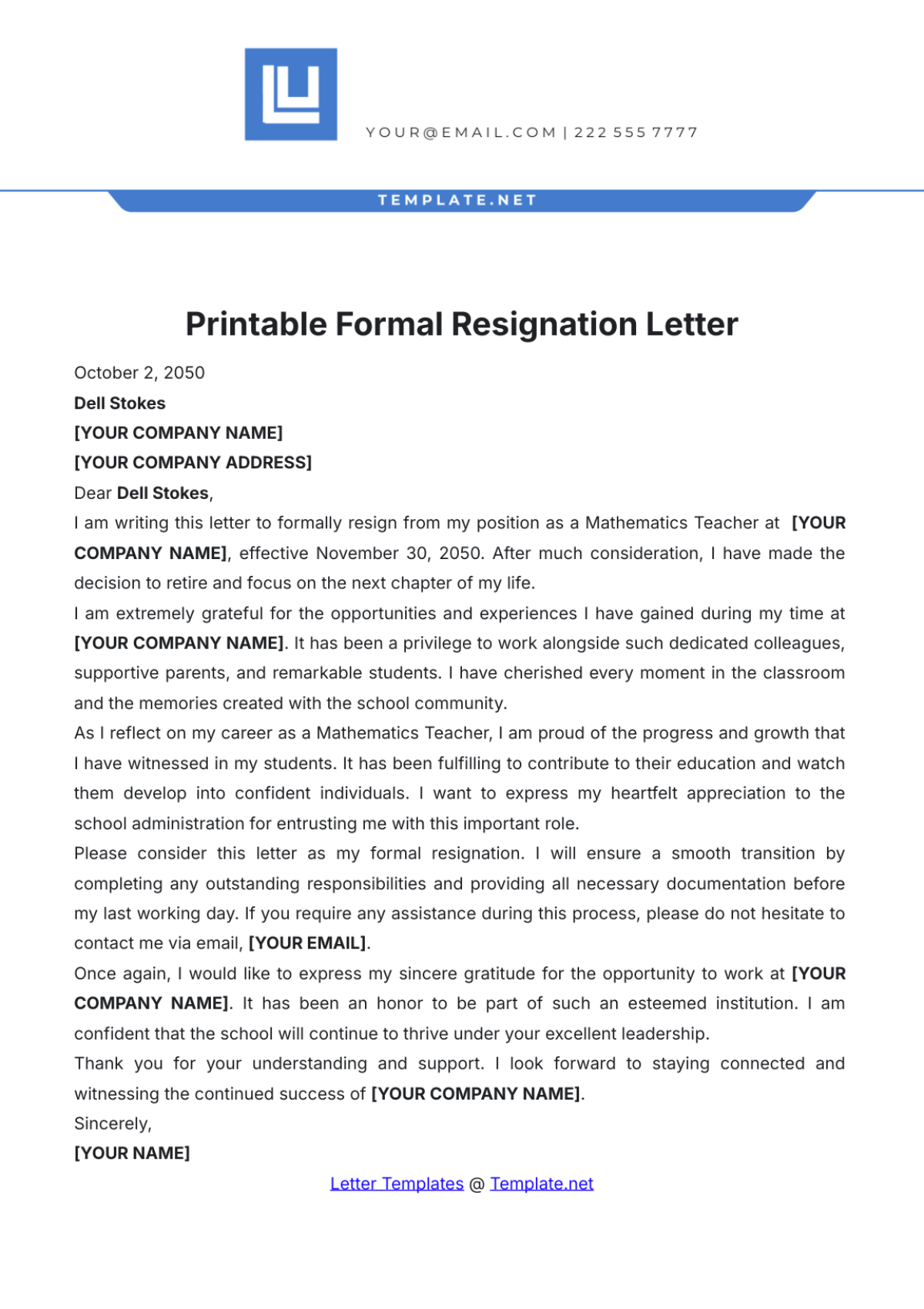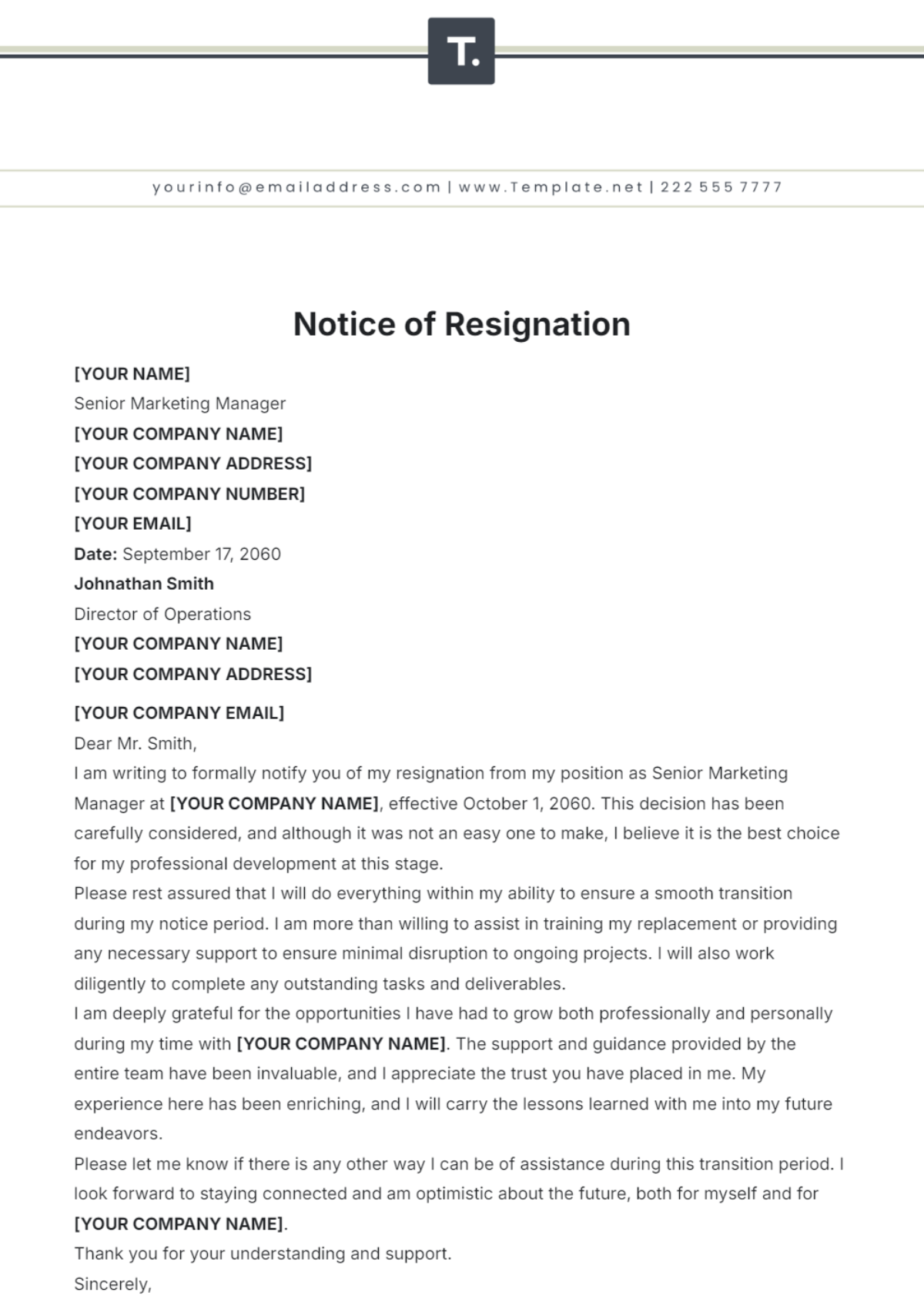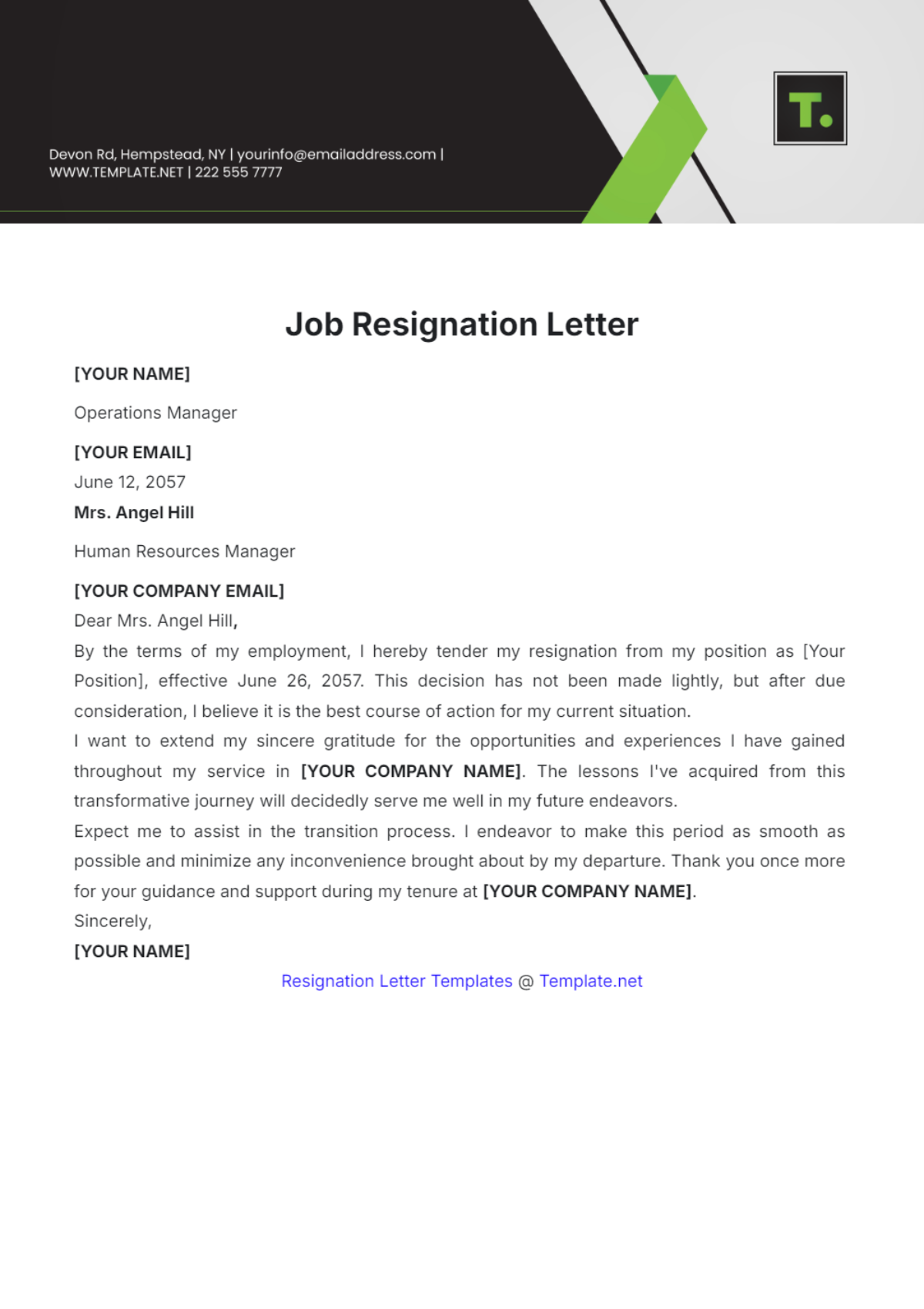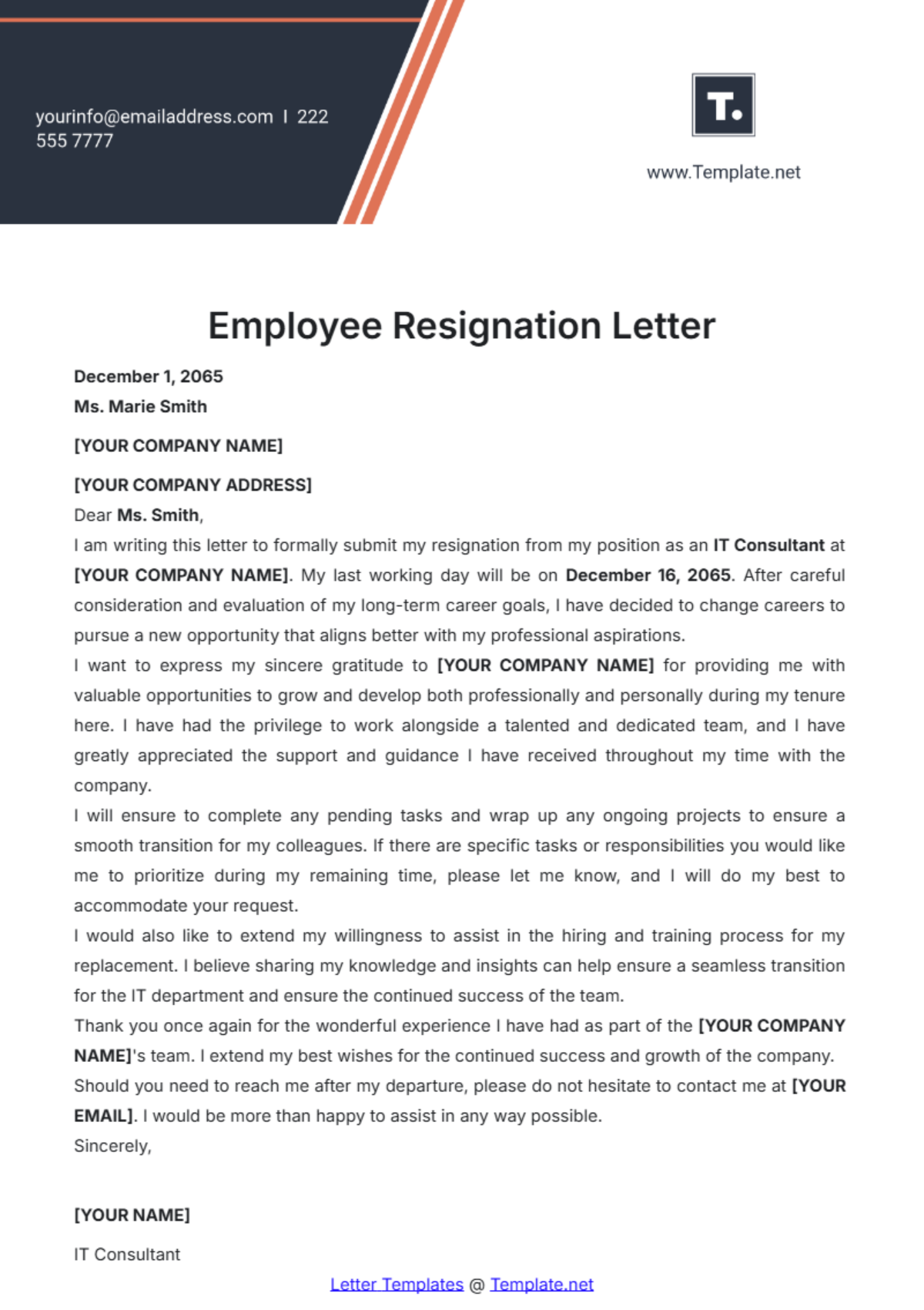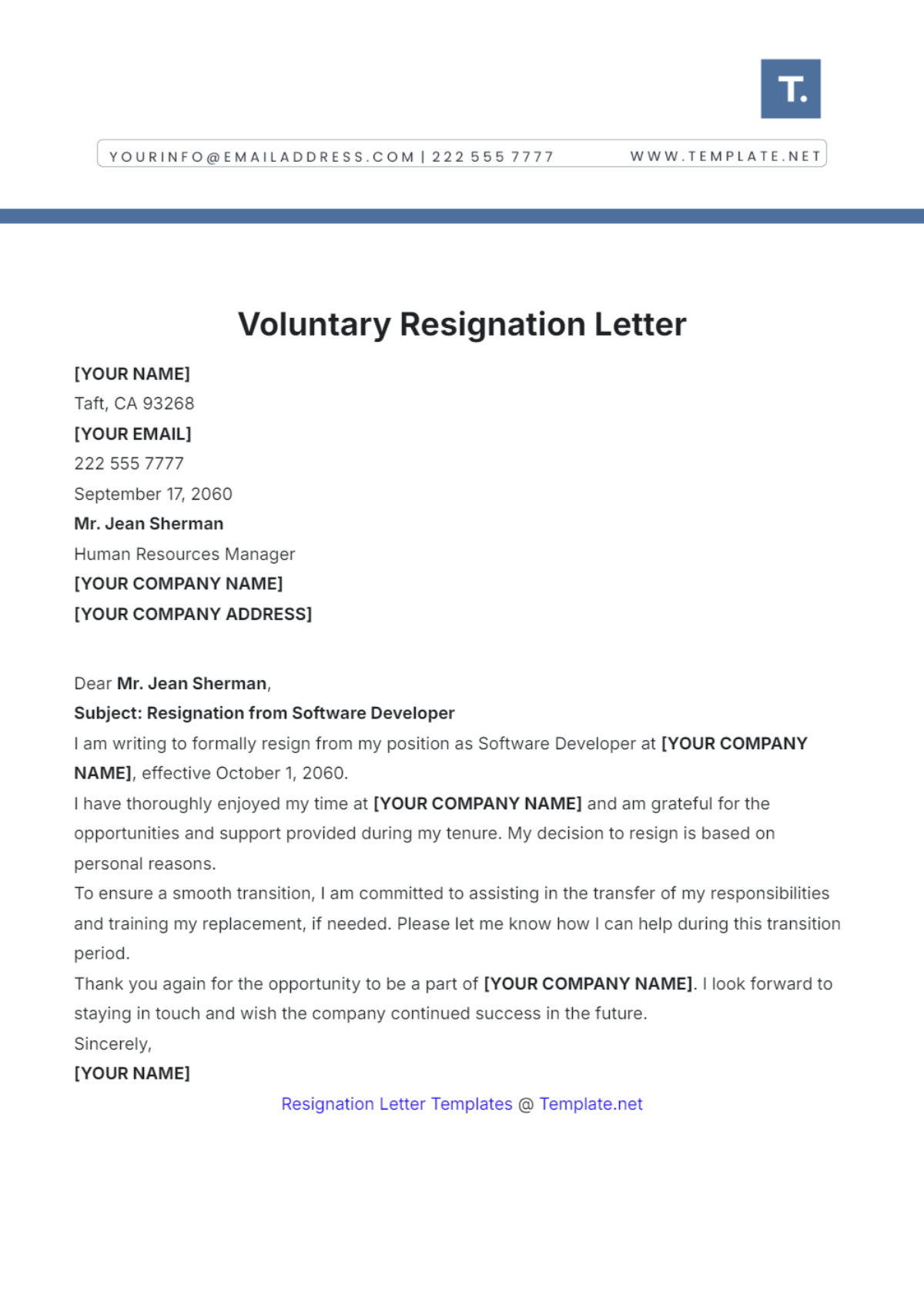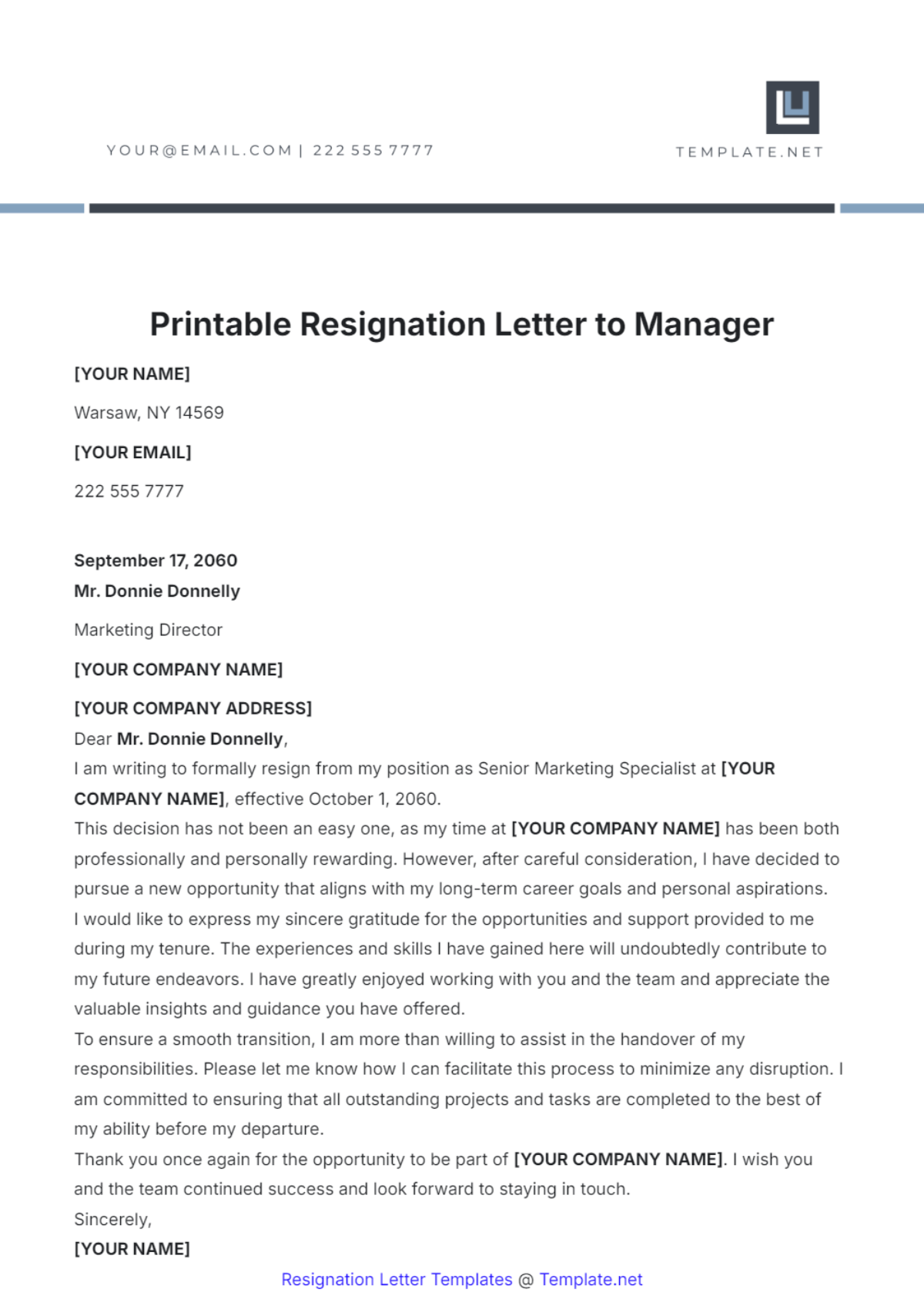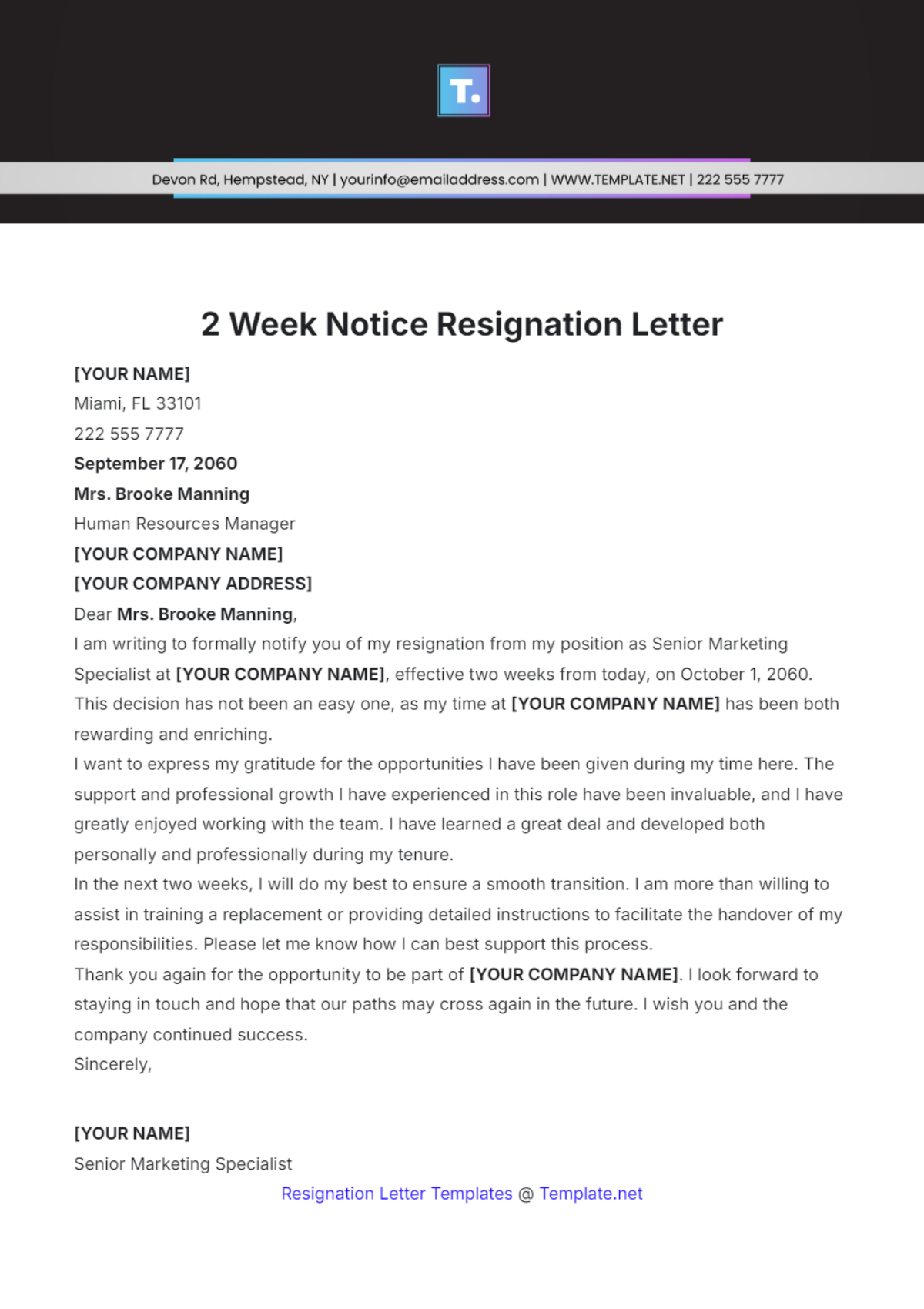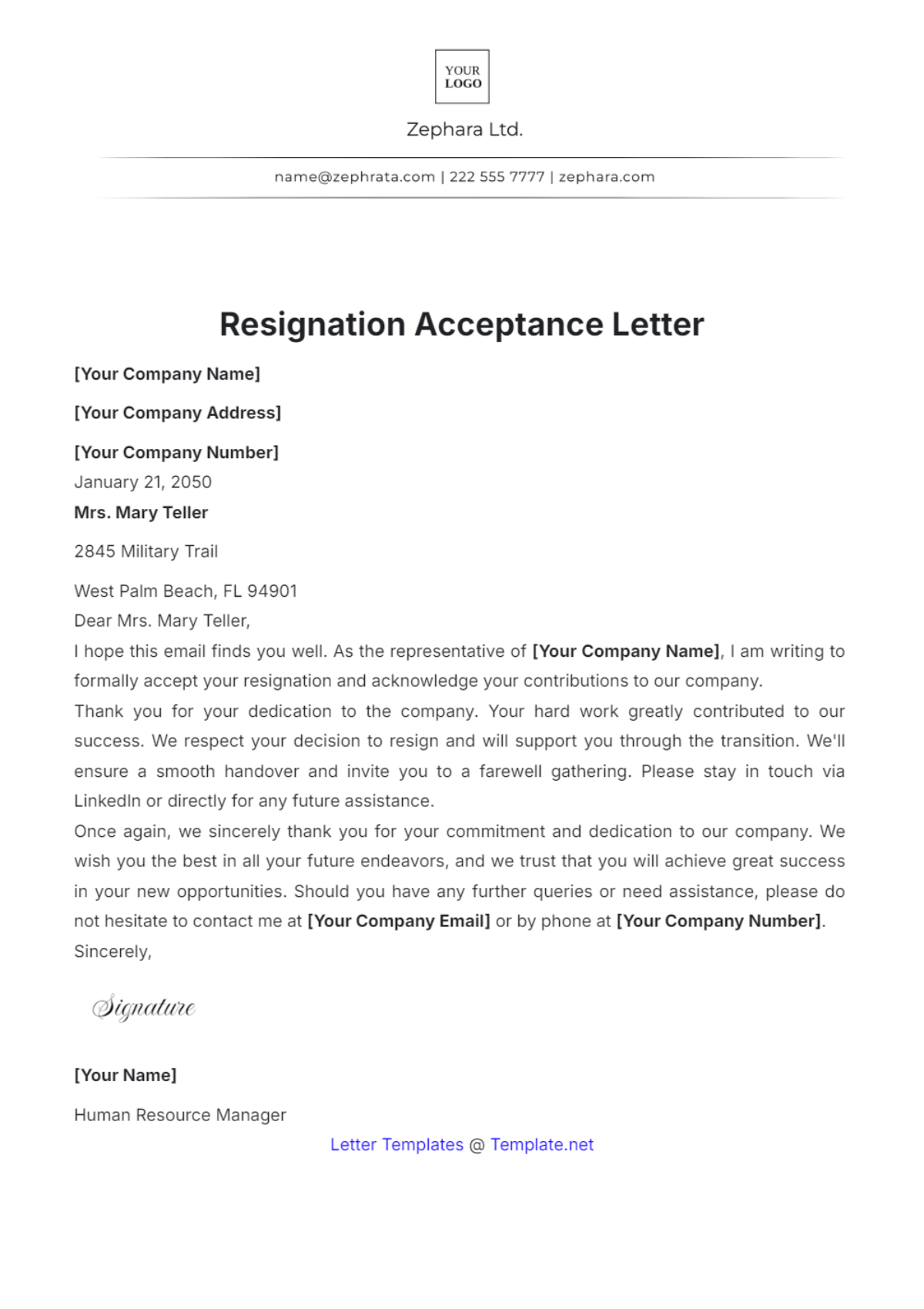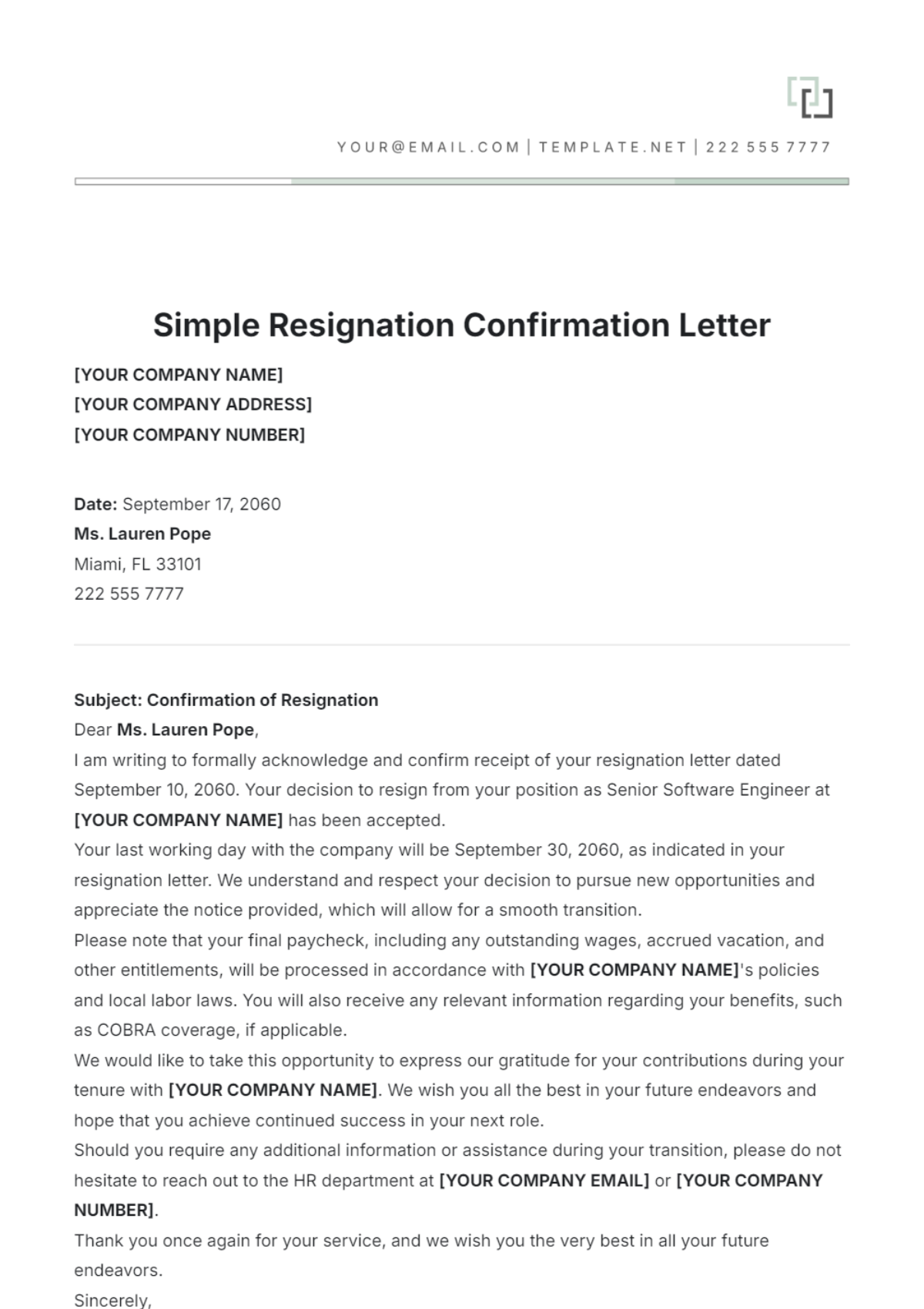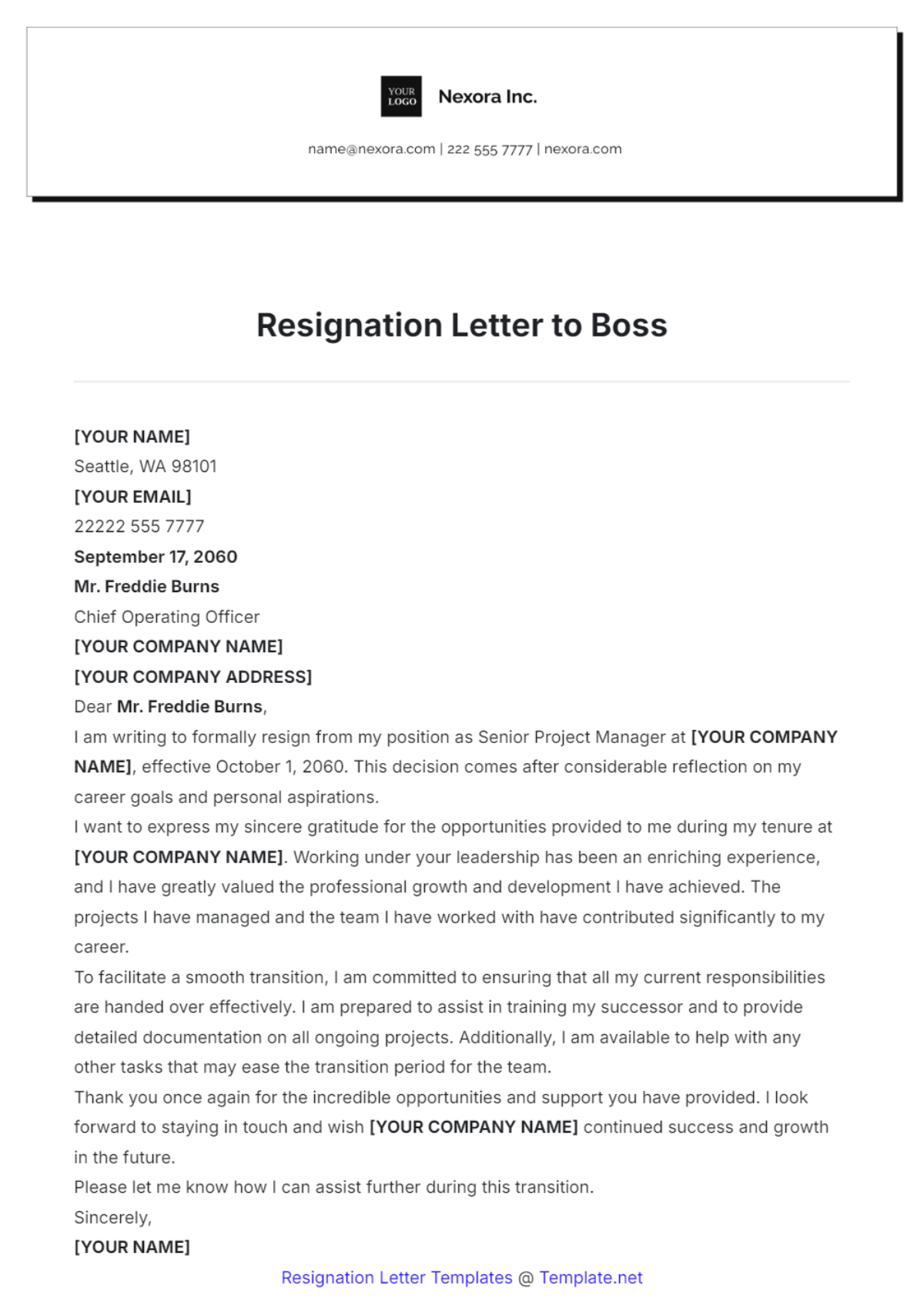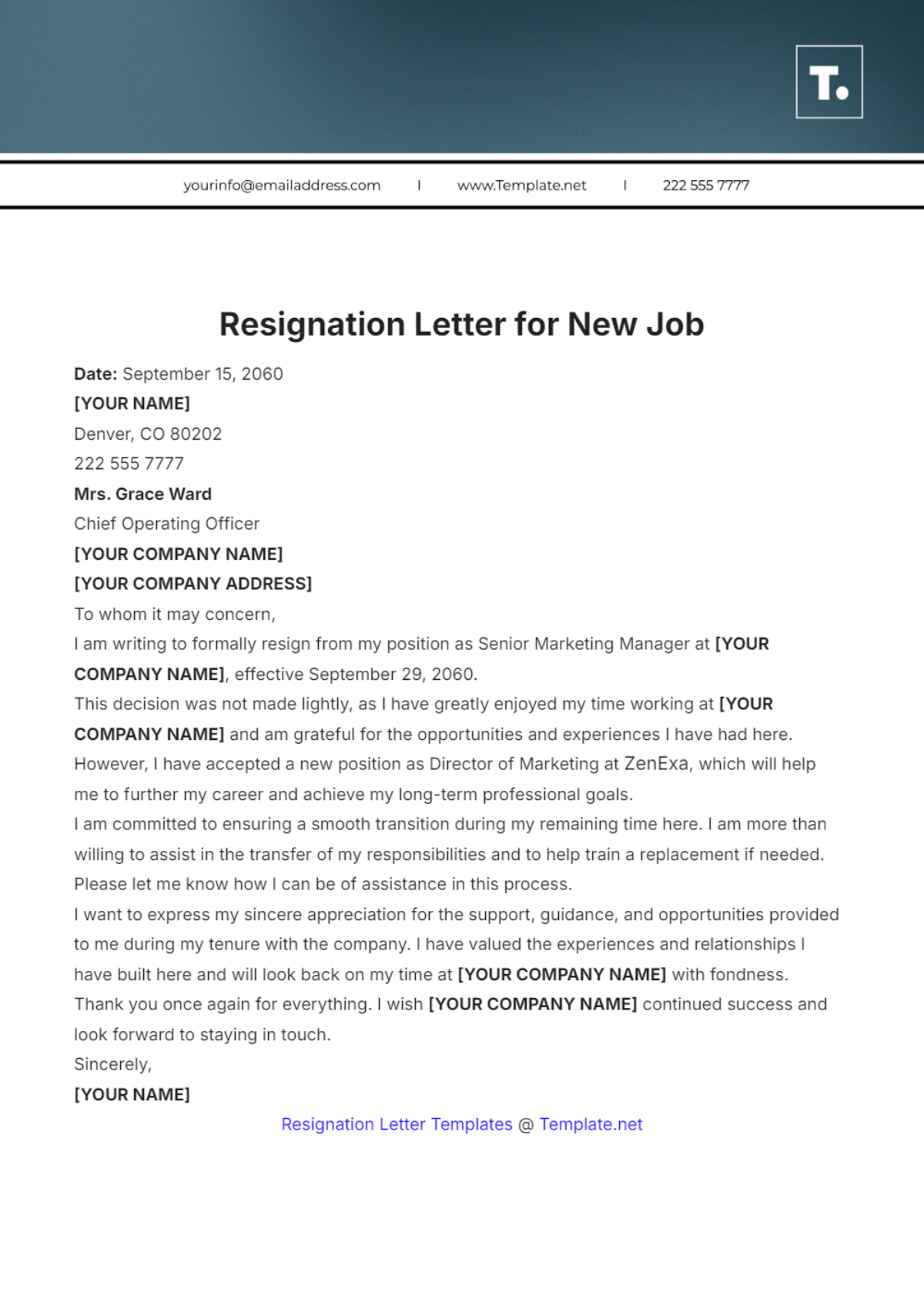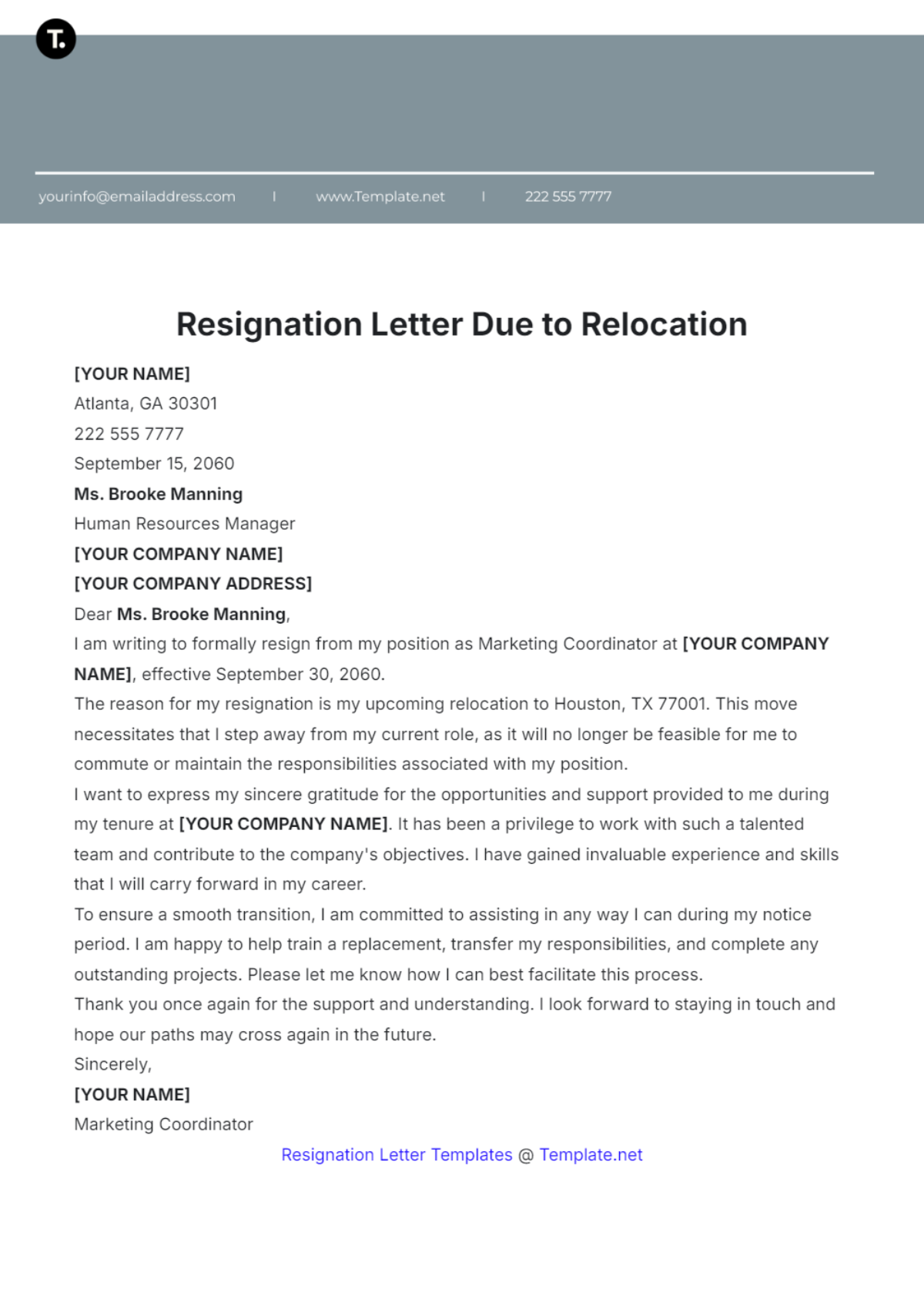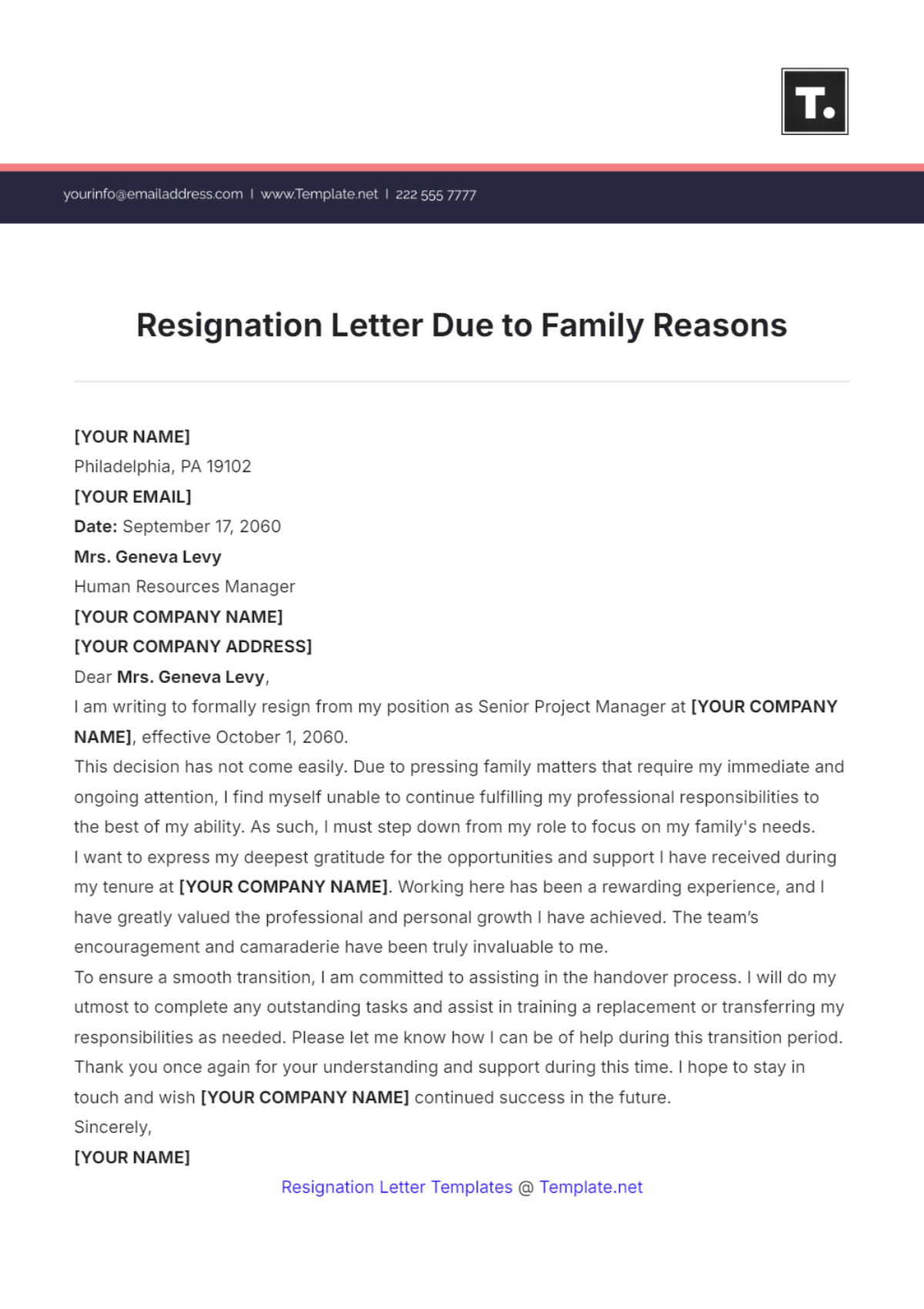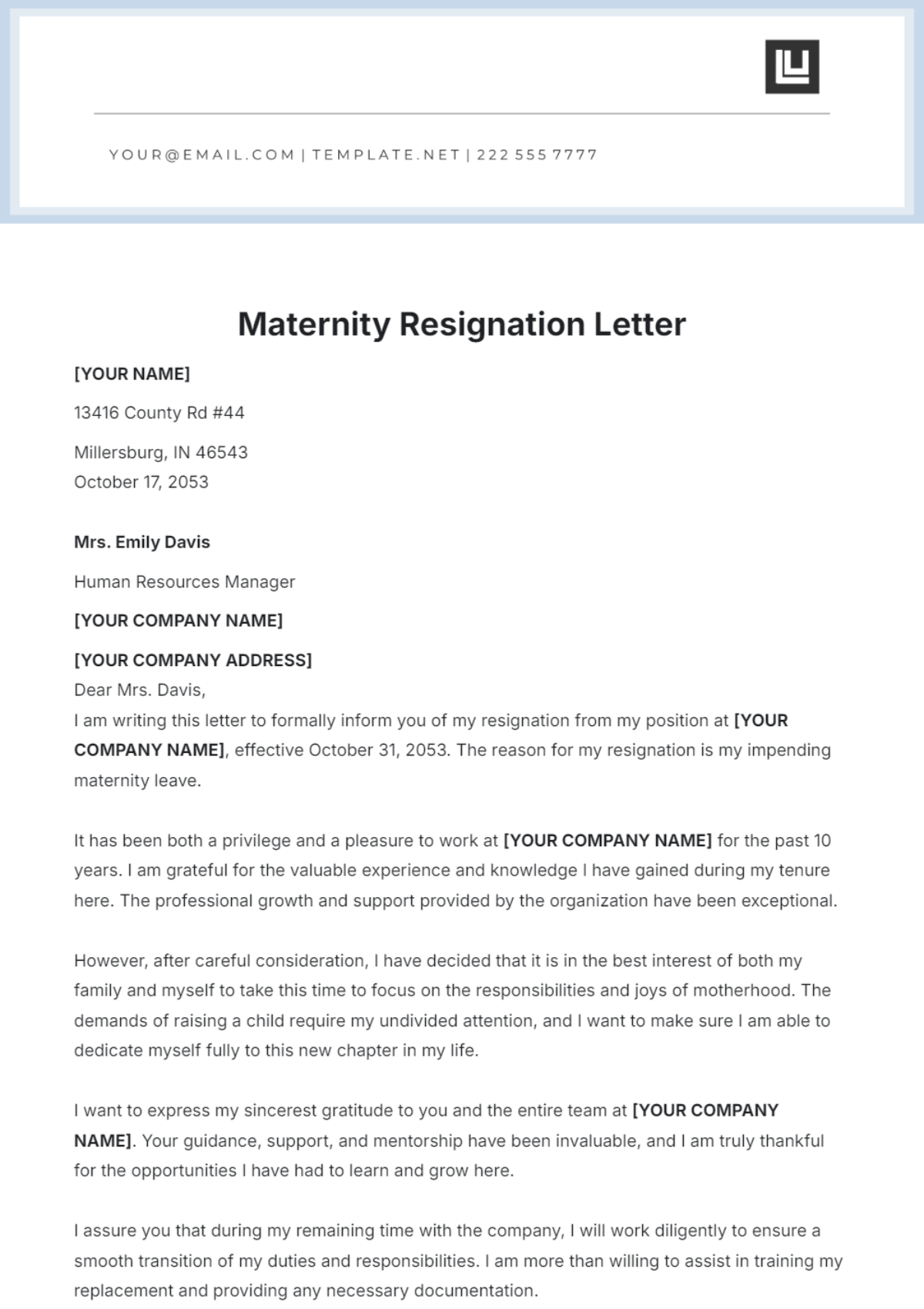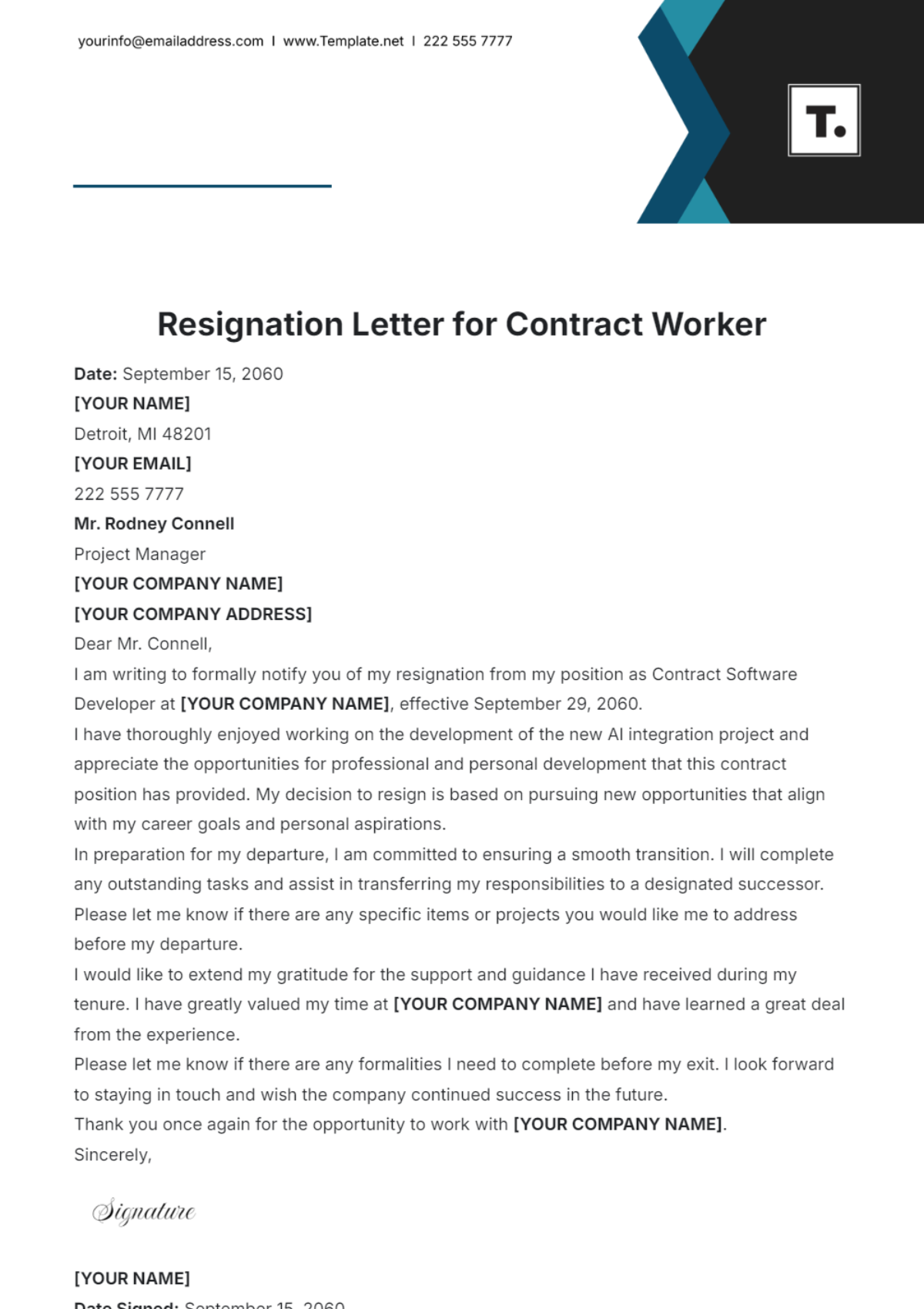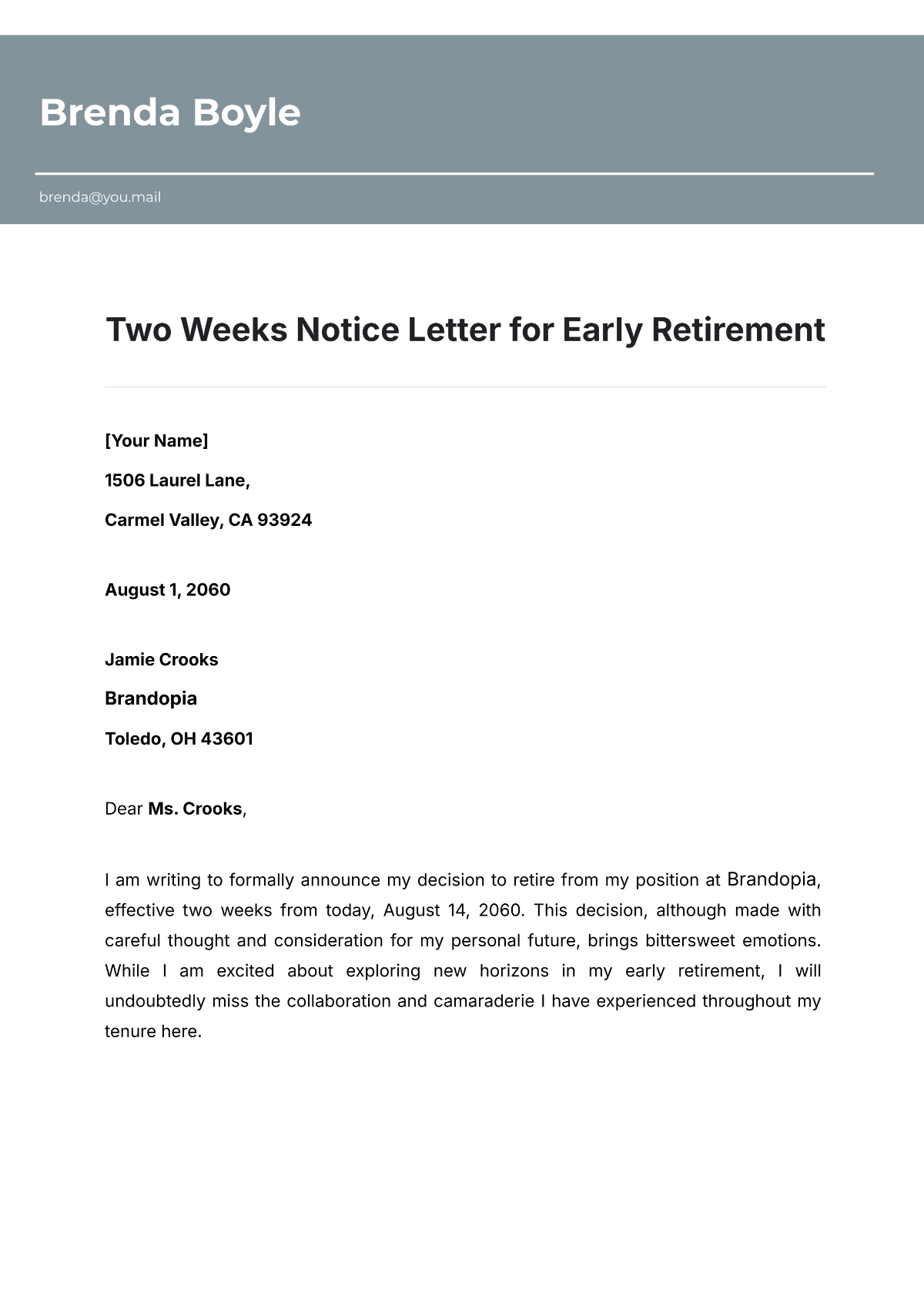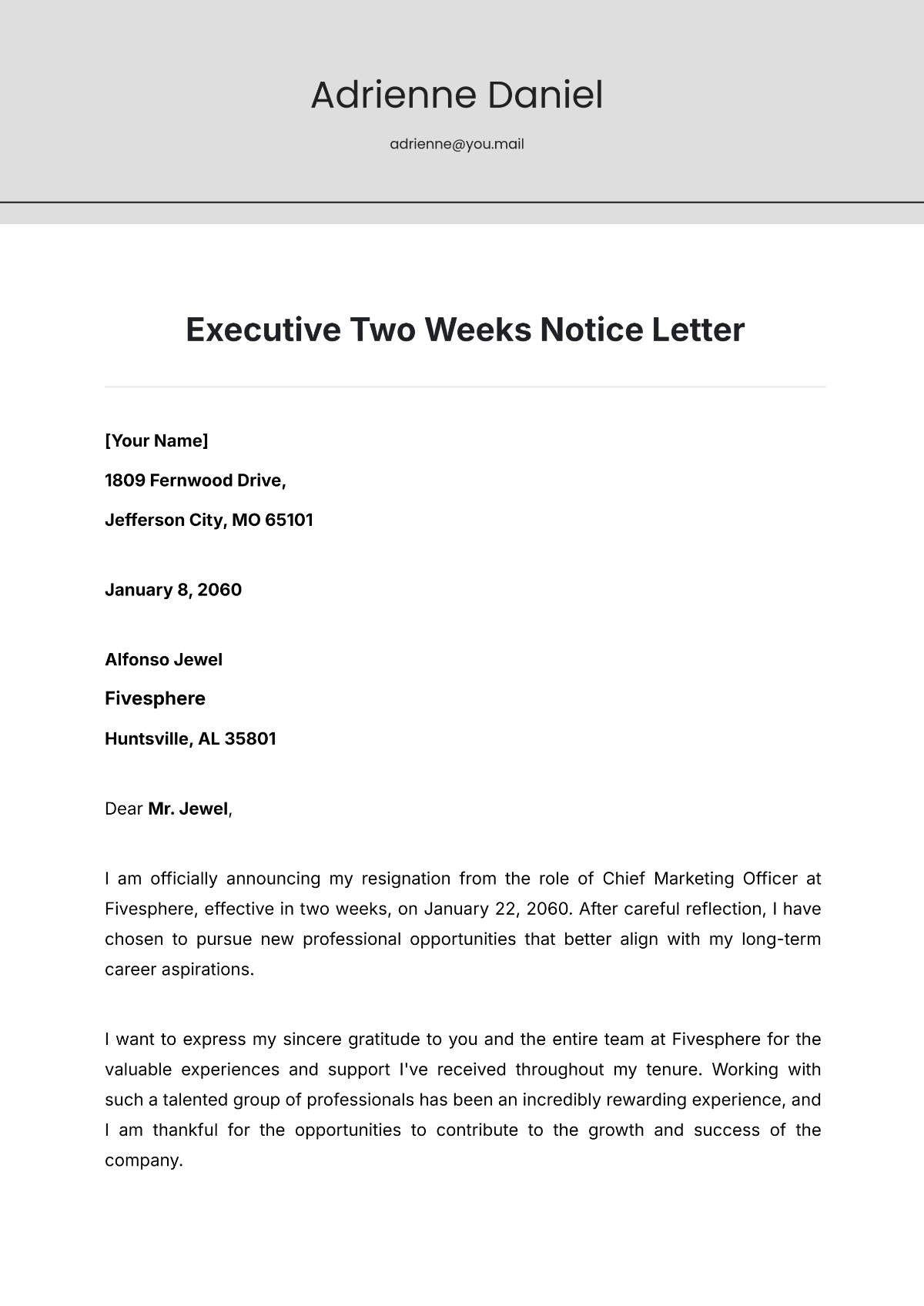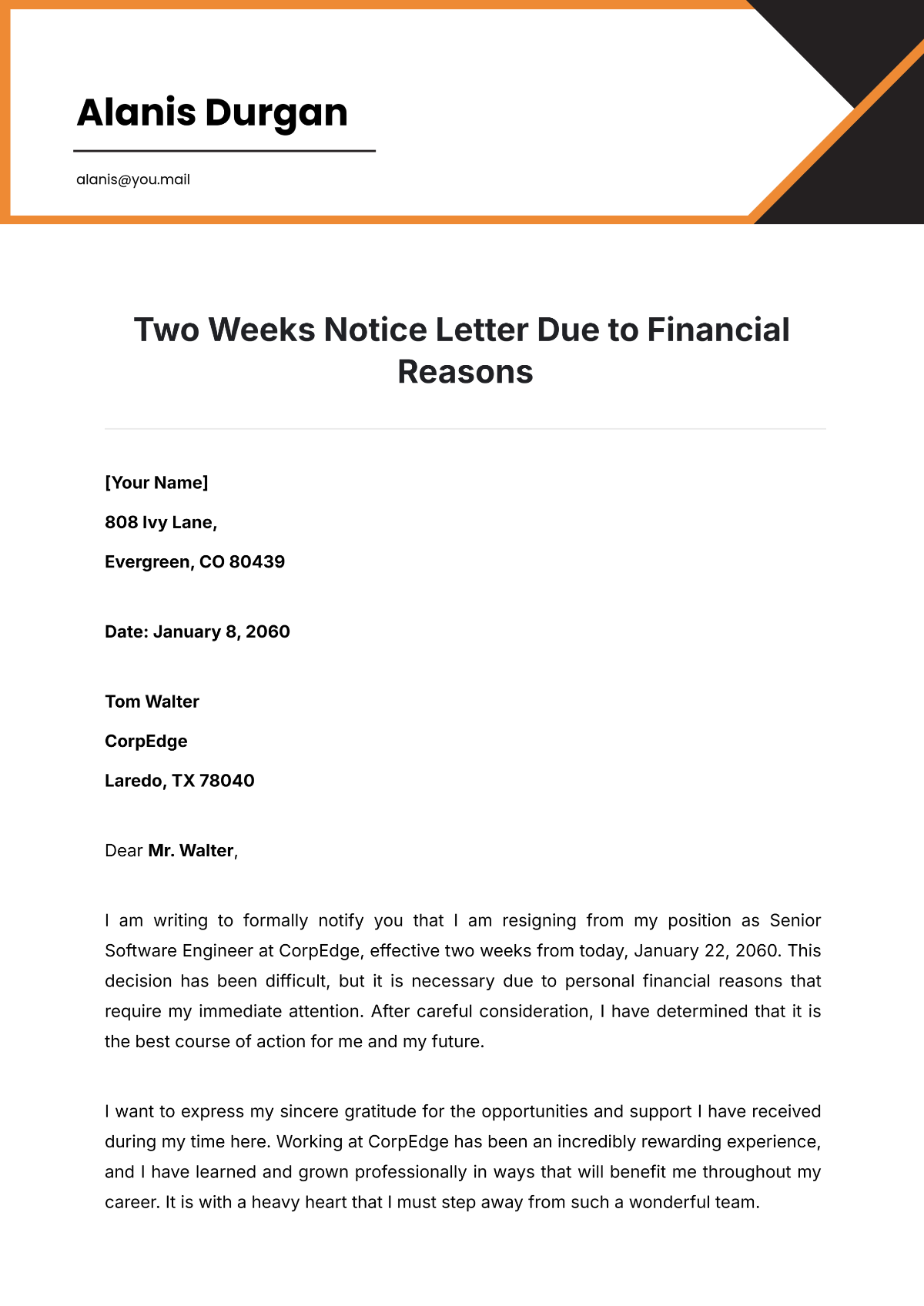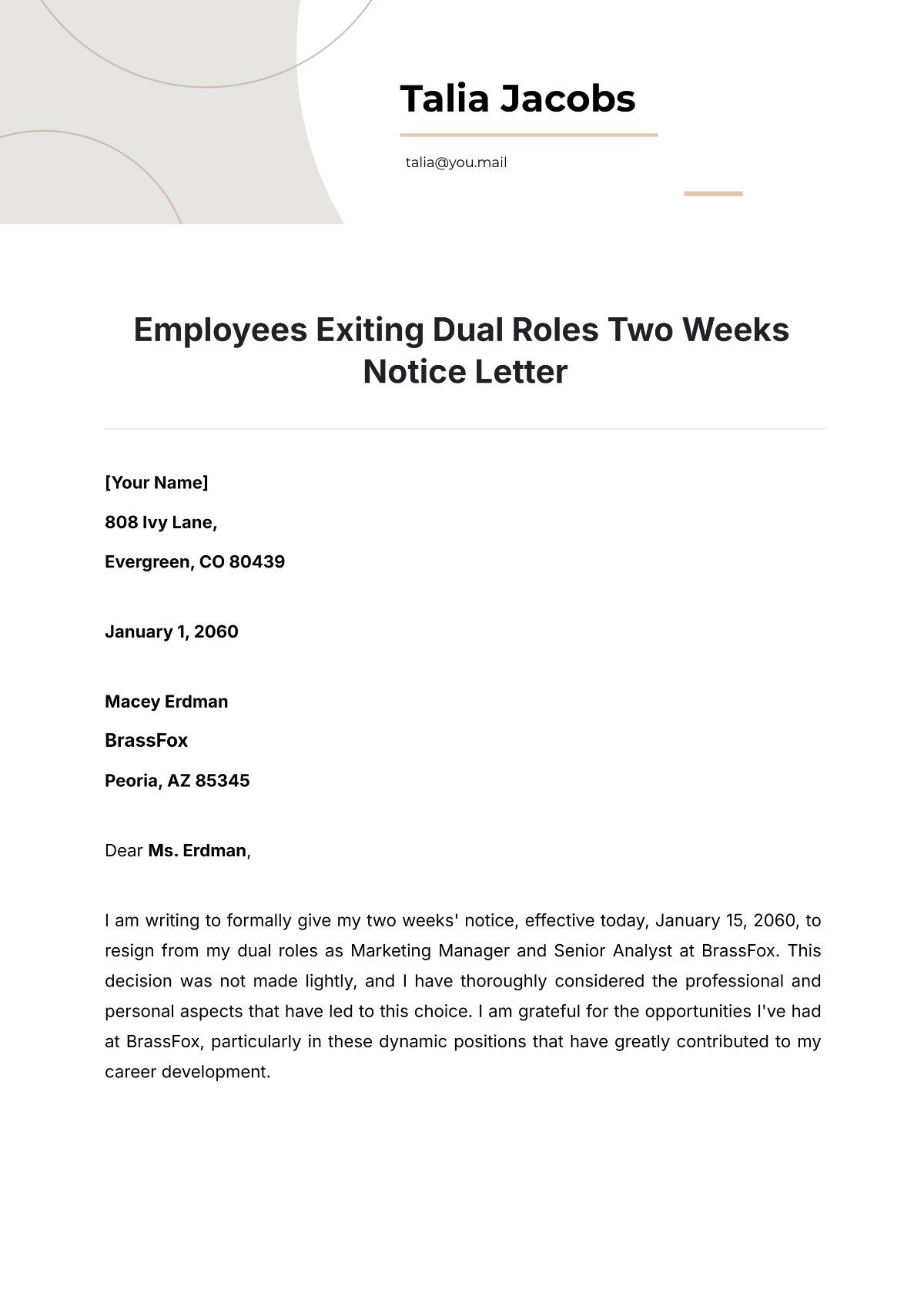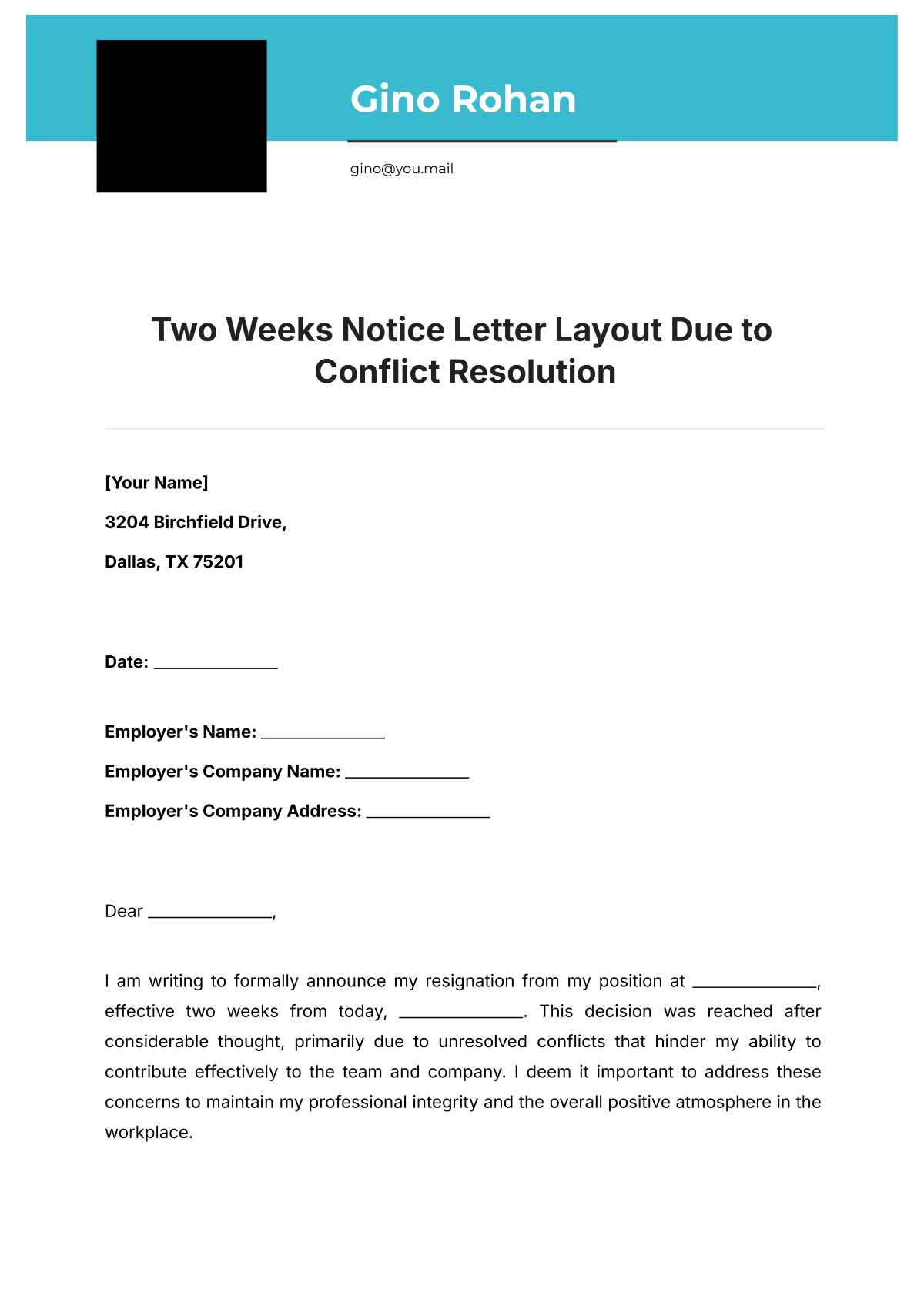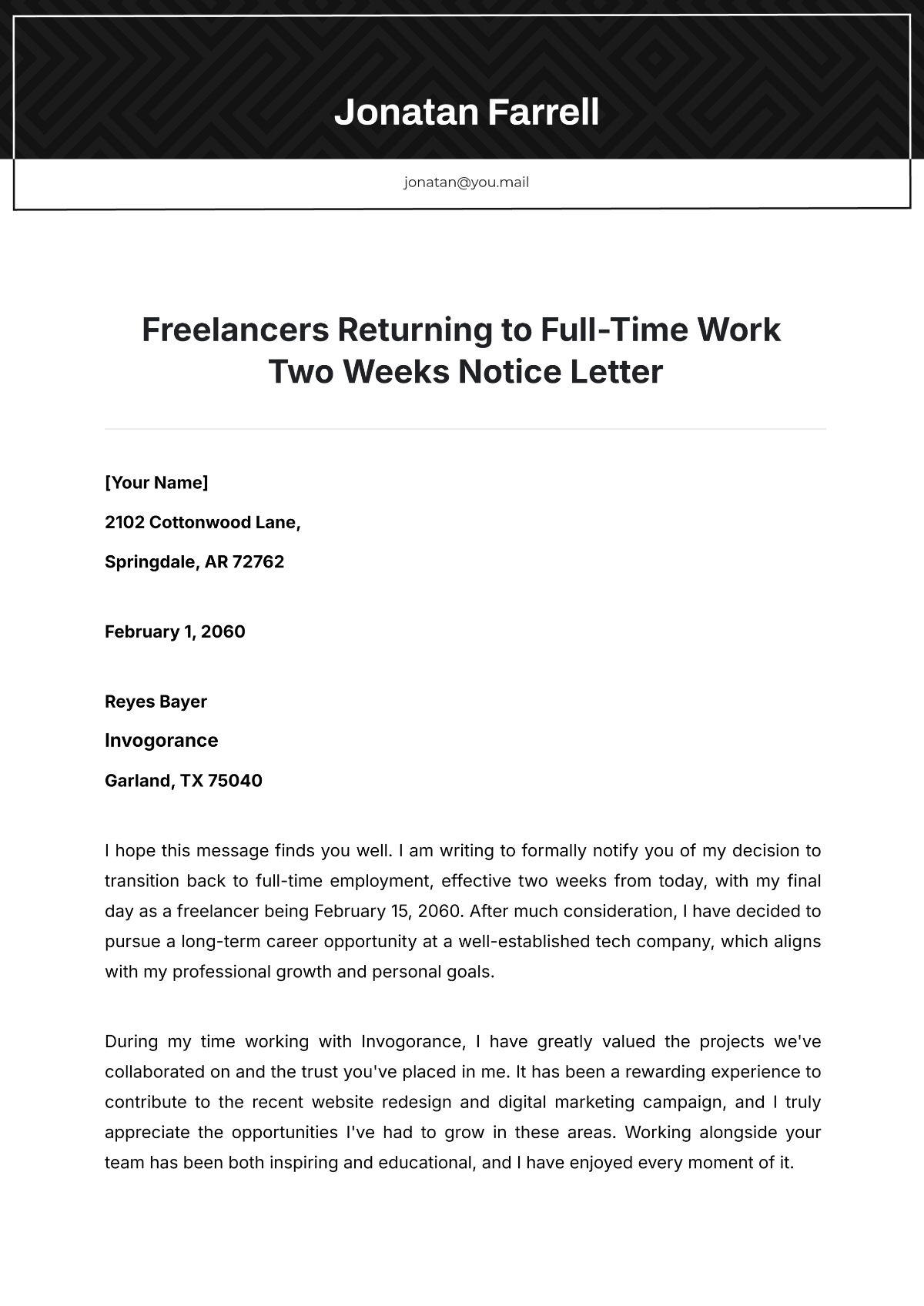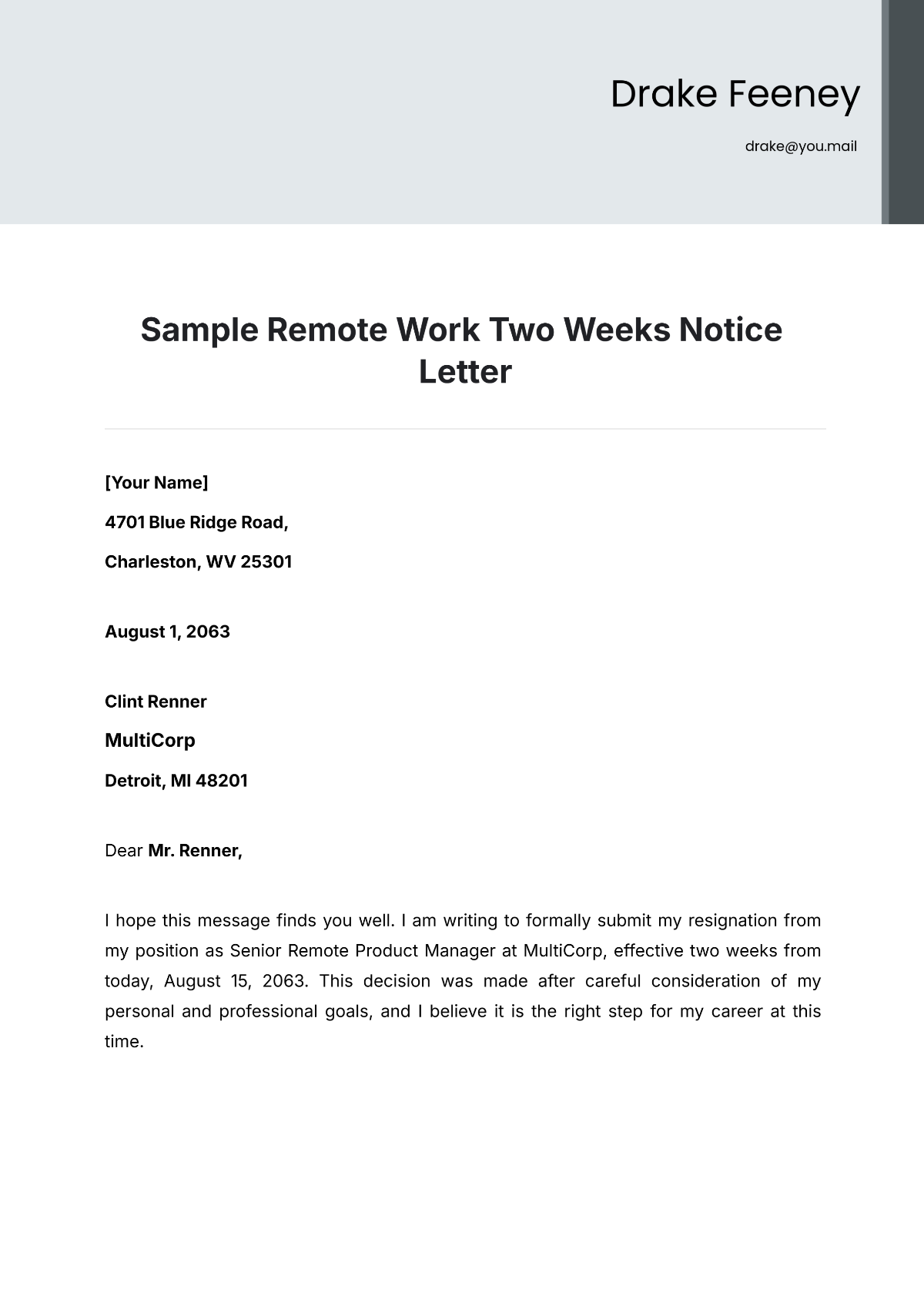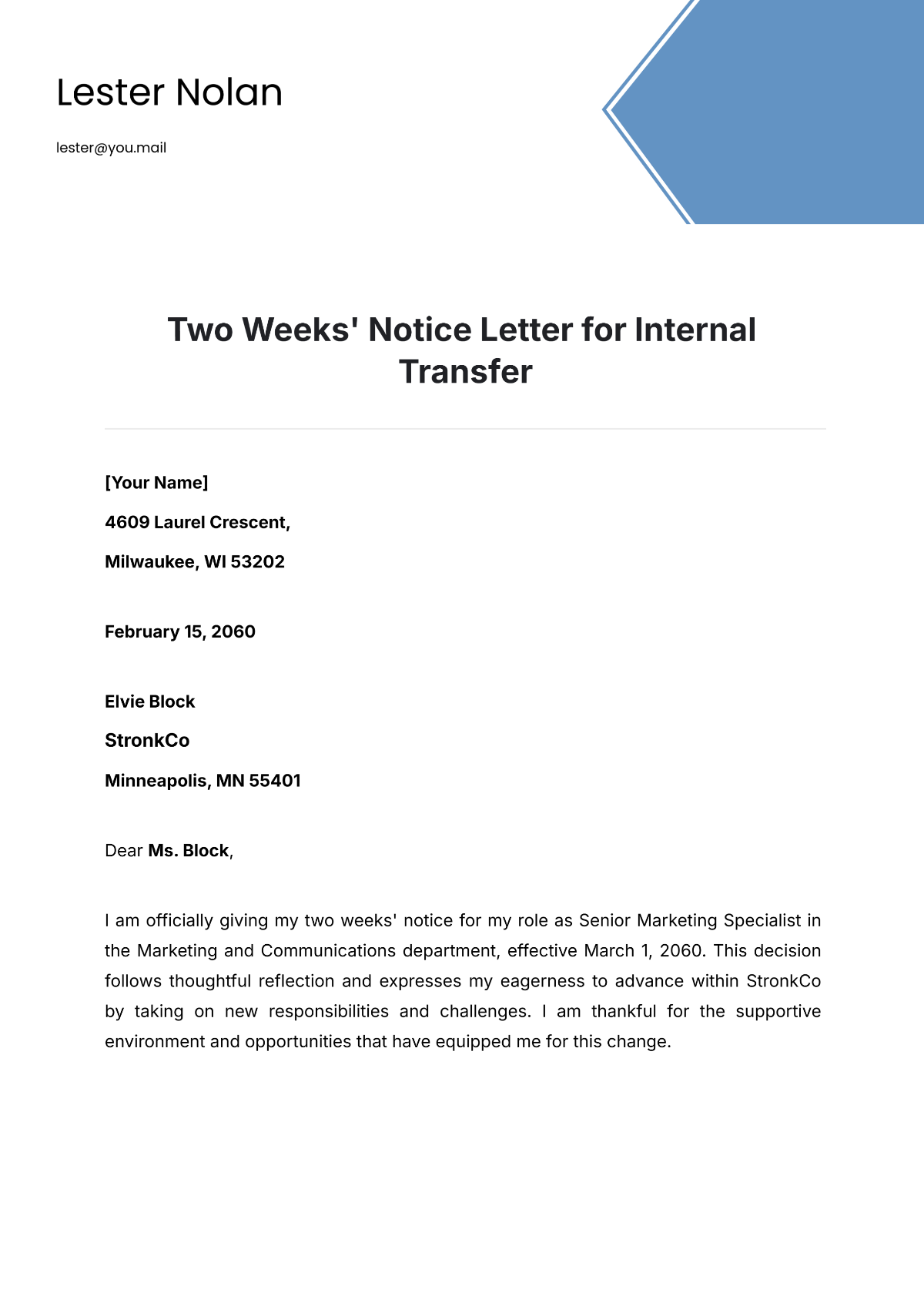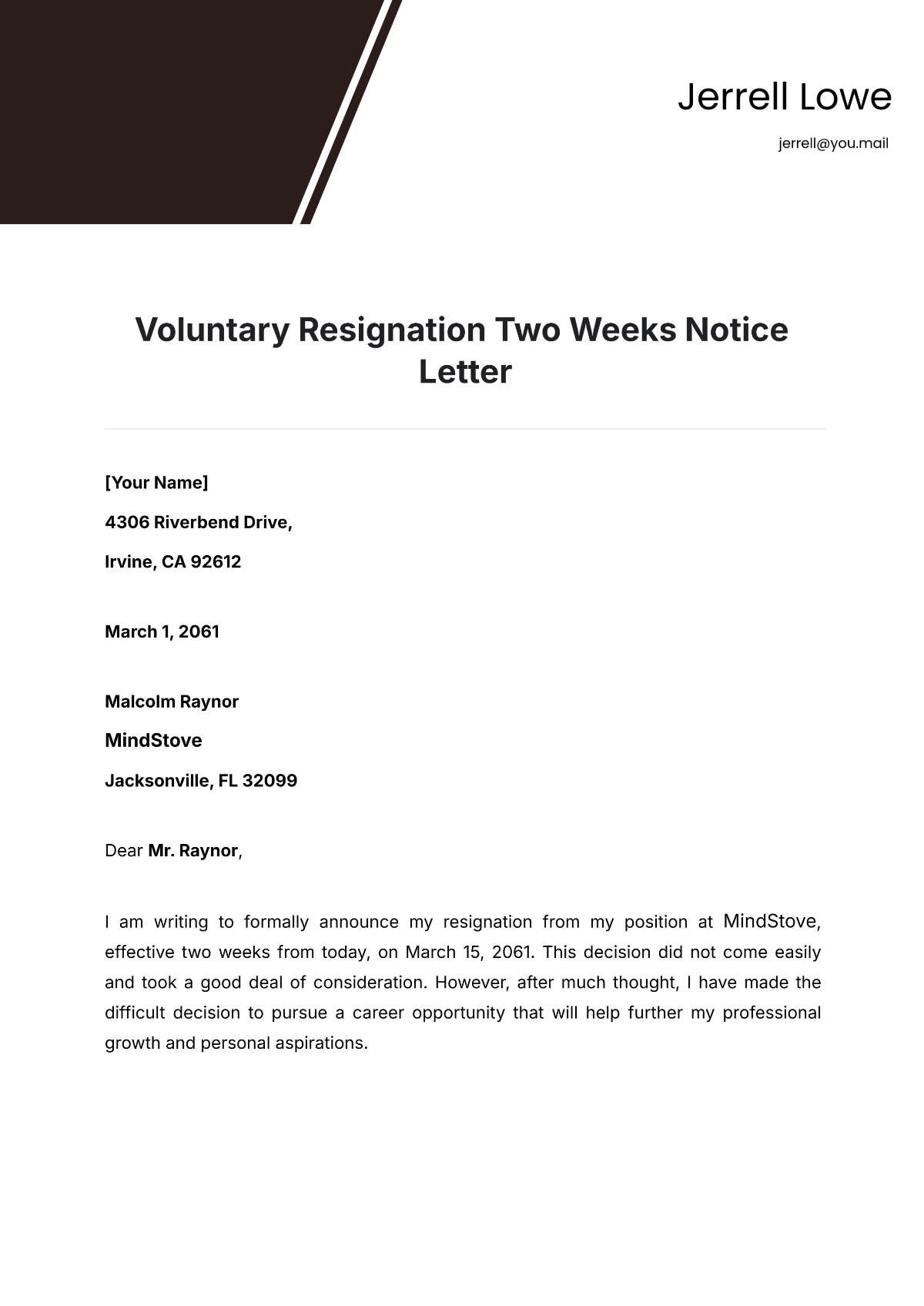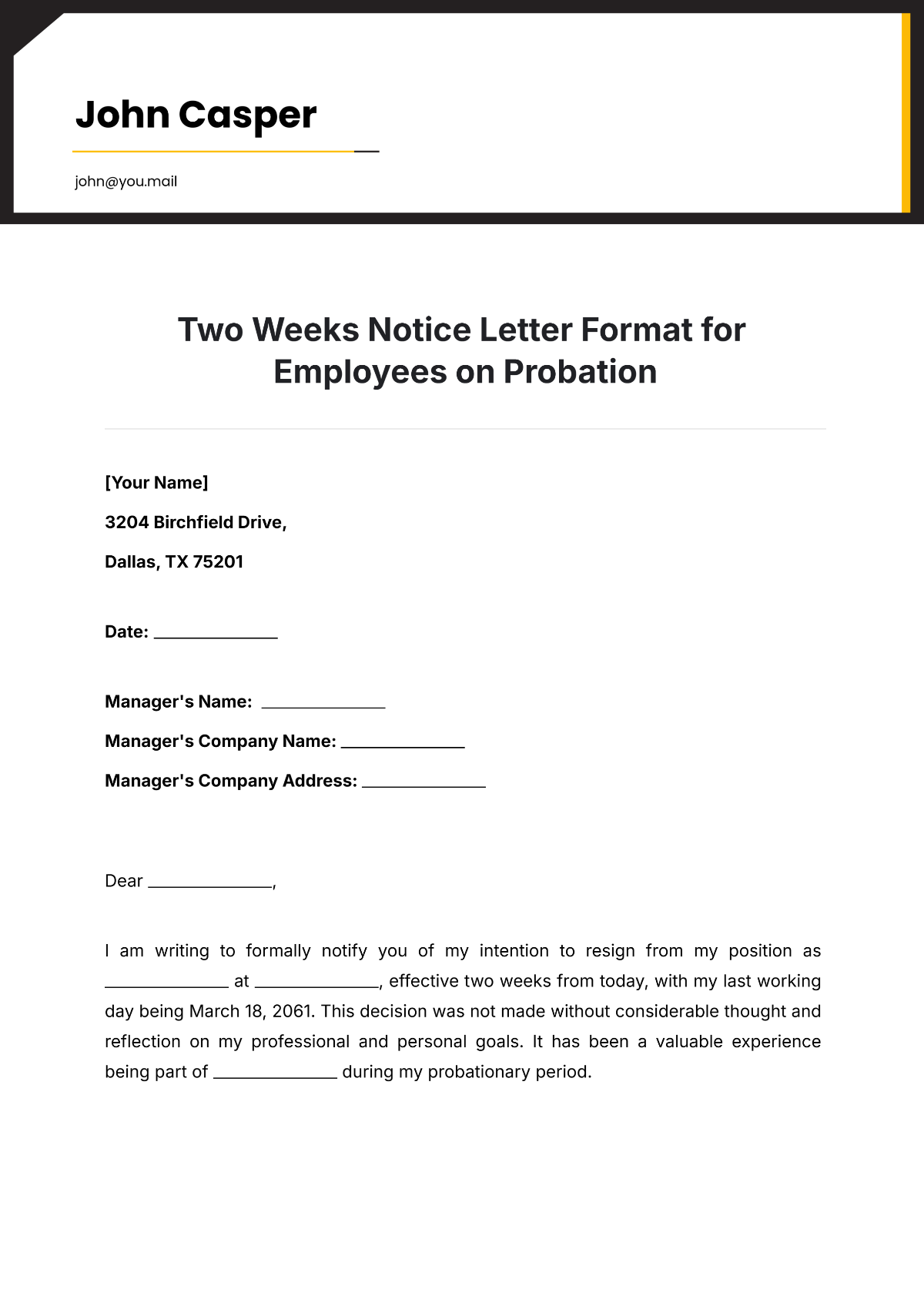How to Write a Resignation Letter
Prepared by: [Your Name]
I. Introduction: Why a Resignation Letter is Important
Writing a resignation letter is a crucial step in the process of leaving a job. It allows you to leave your current position professionally and gracefully. A well-written resignation letter can help maintain a positive relationship with your employer, ensuring that you exit on good terms and preserve any future opportunities.
Why You Need a Resignation Letter
Professionalism: A resignation letter formalizes your decision and reflects your professional demeanor.
Documentation: It provides both you and your employer with a written record of your departure.
Future References: A positive resignation letter can improve the likelihood of a favorable reference or recommendation from your employer.
II. Key Elements of a Resignation Letter
A resignation letter should be clear, concise, and polite. It’s important to include certain elements to ensure your letter covers all the necessary details.
A. Basic Structure
Header: Include your name, address, and date.
Greeting: Address your letter to your immediate supervisor or HR representative.
Resignation Statement: Clearly state your resignation and your last working day.
Reason for Leaving (optional): Explaining your reason is optional.
Gratitude: Thank you for the opportunities and experience.
Offer to Help with Transition: Offer help during the handover.
Closing Statement: End with a polite closing, such as "Sincerely" or "Best Regards."
B. Sample Resignation Letter
[Your Name]
[Your Address]
[Date]
[Supervisor's Name]
[Company Name]
[Company Address]
Dear [Supervisor's Name],
I am writing to formally resign from my position as [Your Job Title] at [Company Name], with my final working day being [Last Working Day]. After careful consideration, I have decided to pursue new opportunities that align with my career goals.
I want to thank you for the opportunity to be part of [Company Name]. I have learned a great deal during my time here and have greatly appreciated the support and guidance from both you and my colleagues.
During my notice period, I am happy to assist in any way I can to ensure a smooth transition.
Thank you again for everything.
Sincerely,
[Your Name]
III. Tips for Writing a Resignation Letter
To ensure that your resignation letter is well-received, here are a few helpful tips to keep in mind.
A. Be Professional and Polite
Even if you are leaving due to dissatisfaction or a negative experience, maintain professionalism in your letter. Avoid airing grievances or offering criticism. The goal is to leave on a positive note.
B. Keep It Short and to the Point
A resignation letter does not need to be long. Stick to the essential points: resignation statement, last day, and gratitude.
C. Customize It for Your Situation
Each resignation letter will be different based on the individual's circumstances. Whether you are resigning for a new job, personal reasons, or another cause, tailor the letter to reflect your situation appropriately.
D. Use Positive Language
Even if you're excited to move on, frame your language in a way that reflects your appreciation for your time at the company. This will leave a lasting, positive impression.
IV. Checklist: Essential Components of a Resignation Letter
Before submitting your resignation letter, ensure you’ve included all the necessary elements. Use the checklist below to confirm:
Your full name and contact information
The date of your letter
The name and title of your supervisor
Clear resignation statement
Last working day
Reason for leaving (optional)
Expression of gratitude
Offer to assist with the transition
A professional closing
V. Conclusion
A well-crafted resignation letter helps ensure that you leave your current job on good terms. It is your final opportunity to show professionalism and appreciation for the time you’ve spent with your employer. By following the guidelines and using the sample provided, you can create a resignation letter that reflects your professionalism and leaves a positive impression on your employer.
Remember, a great resignation letter can open the door for future opportunities and ensure that your transition to your next job is as smooth as possible.



